Explore the exhibits:
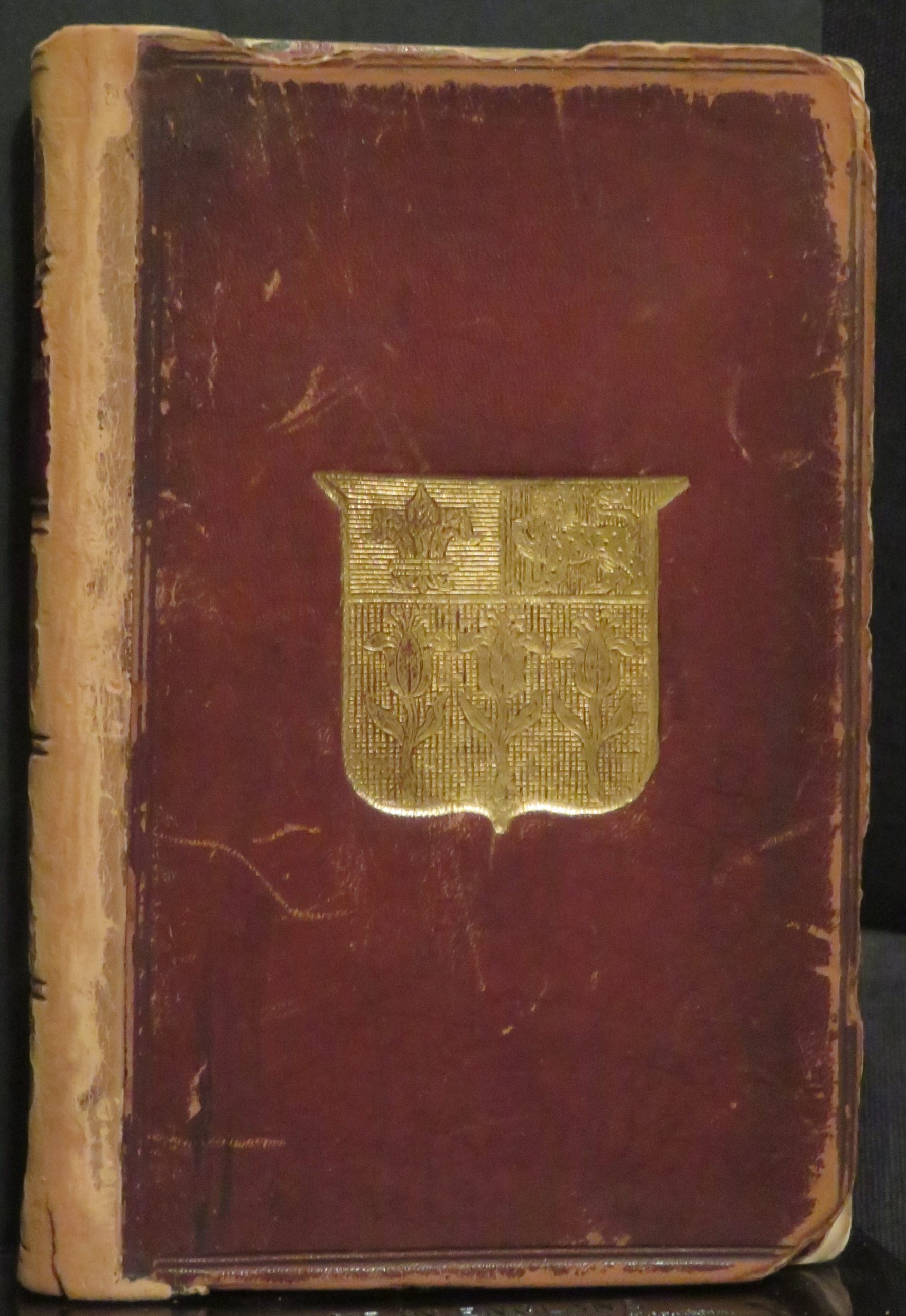
Richmond Ritchie’s copy of The Handy-Volume Shakespeare, vol. 1, (London: Bradbury, Evans, and Co., 1871) [private collection]
From a young age, expectations of Richmond Ritchie were high. A King’s Scholar at Eton College, he went on to Trinity College, Cambridge before enjoying a successful career as a civil servant, which earned him a knighthood in 1907. Richmond worked in the India Office, reaching the post of Permanent Under Secretary in 1909.
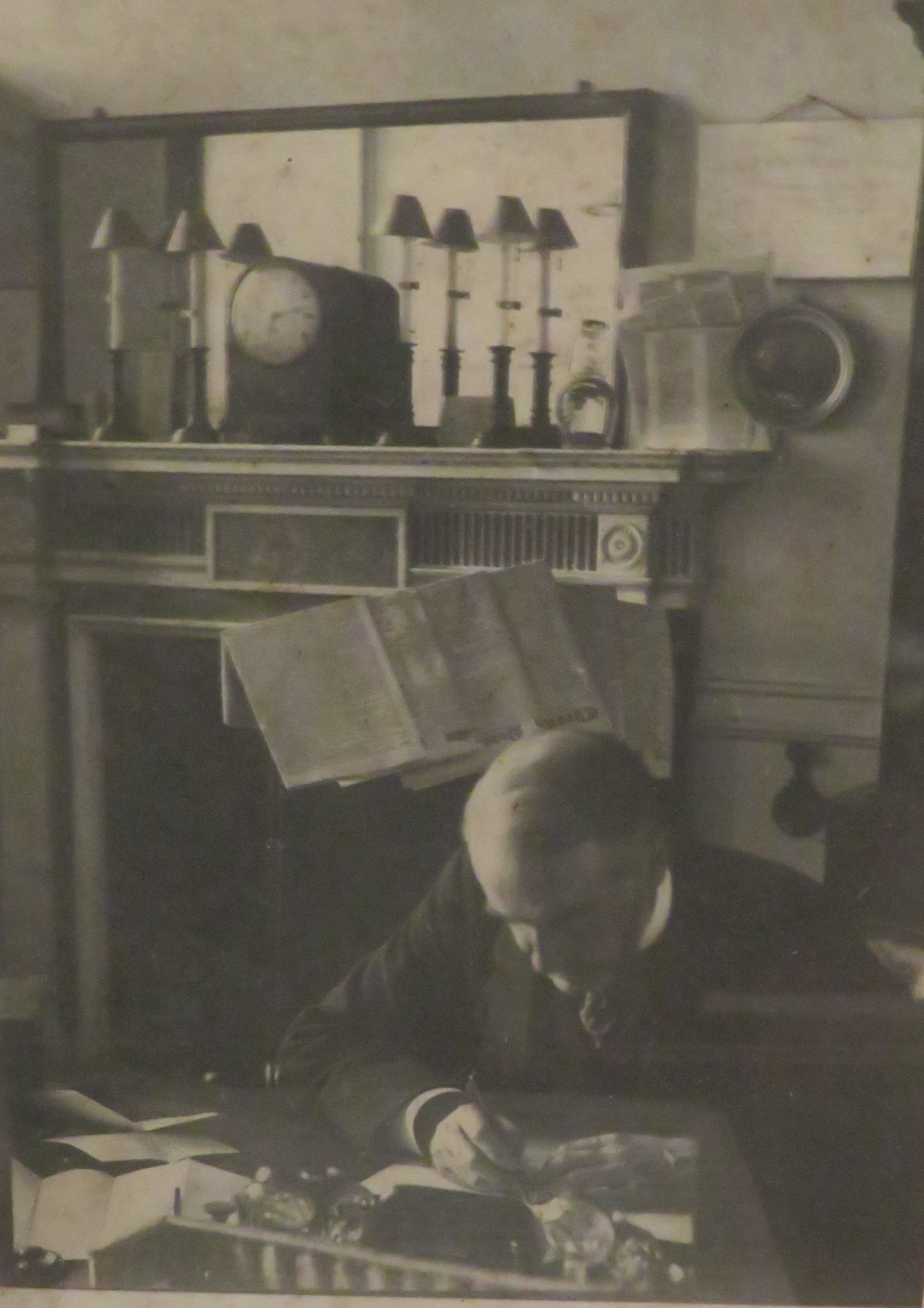
Photograph of Richmond Ritchie (n.d.) [private collection]
From a young age, expectations of Richmond Ritchie were high. A King’s Scholar at Eton College, he went on to Trinity College, Cambridge before enjoying a successful career as a civil servant, which earned him a knighthood in 1907. Richmond worked in the India Office, reaching the post of Permanent Under Secretary in 1909.
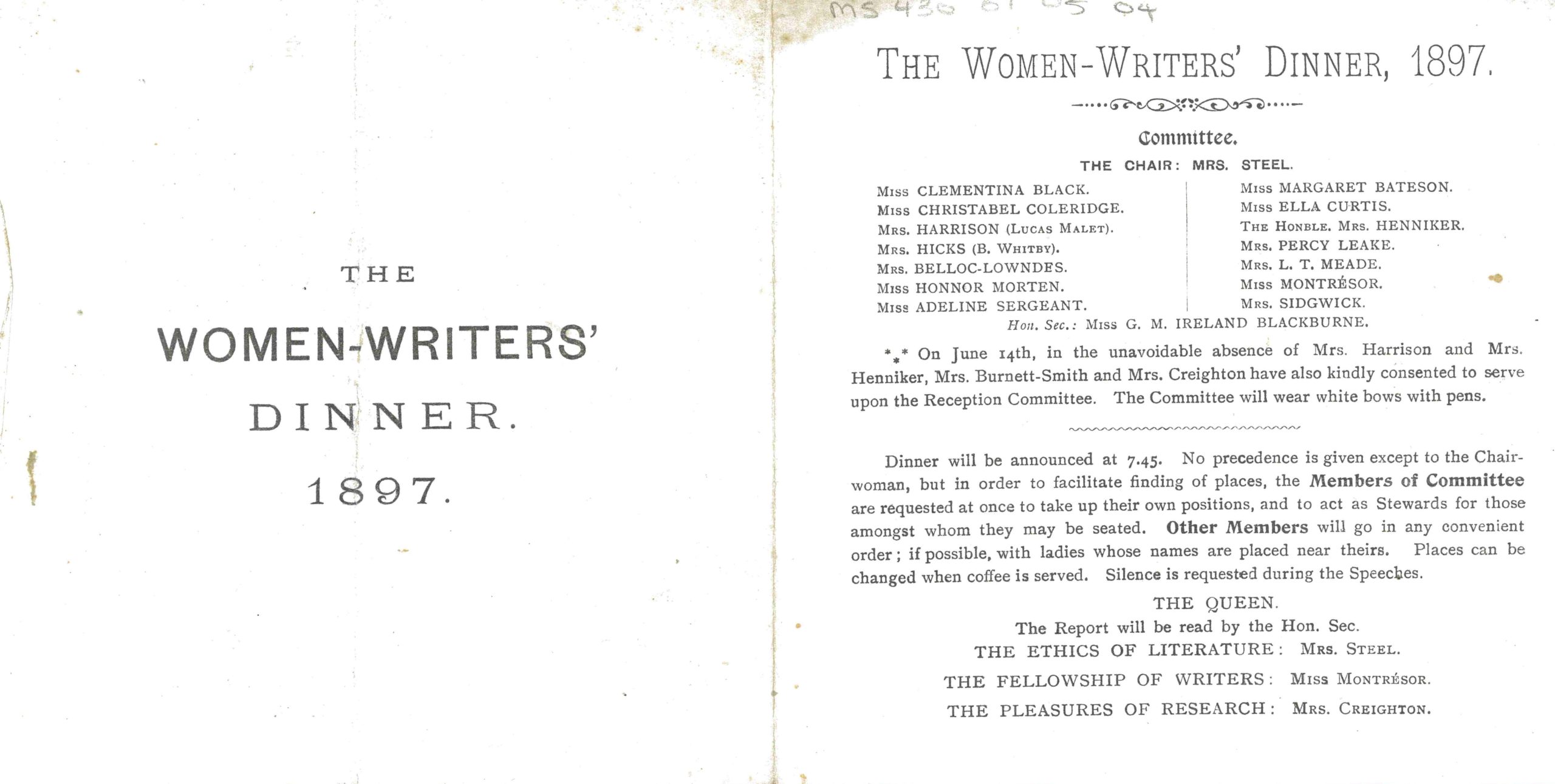
Table plan for the Women Writers’ dinner (1897) (Reproduction) Eton College Library [MS 430/01/05/04]
Annie was also a great advocate of other female writers.
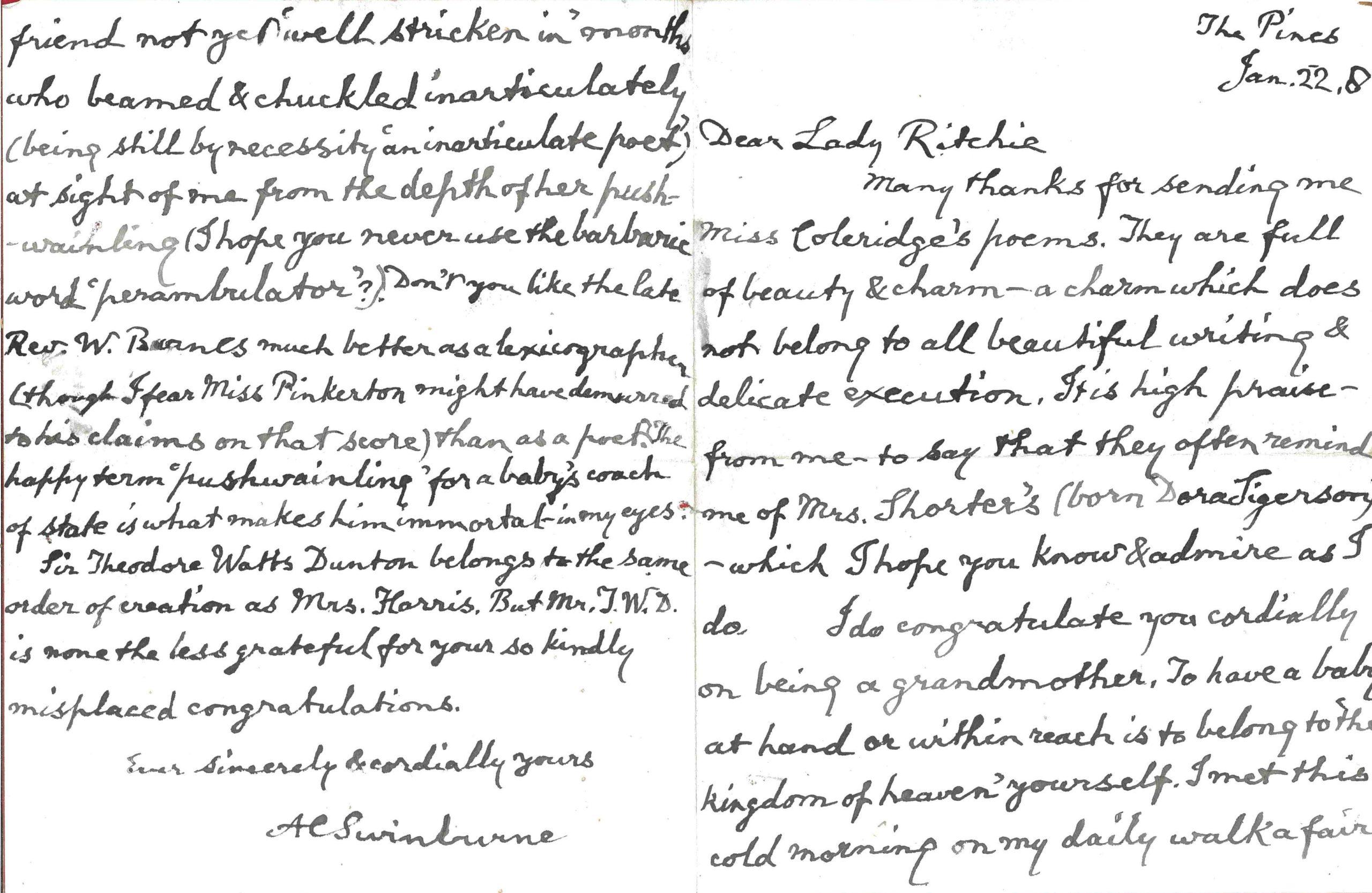
Autograph letter from A.C. Swinburne to Anne Thackeray Ritchie (22 January 1888?) Eton College Library [MS 430/01/05/09]
Annie was also a great advocate of other female writers. In this instance she is promoting the poetry of Mary Coleridge to the Old Etonian poet Algernon Charles Swinburne. Although highly regarded at the time, Coleridge’s popularity as a writer, much like Annie’s, did not endure.
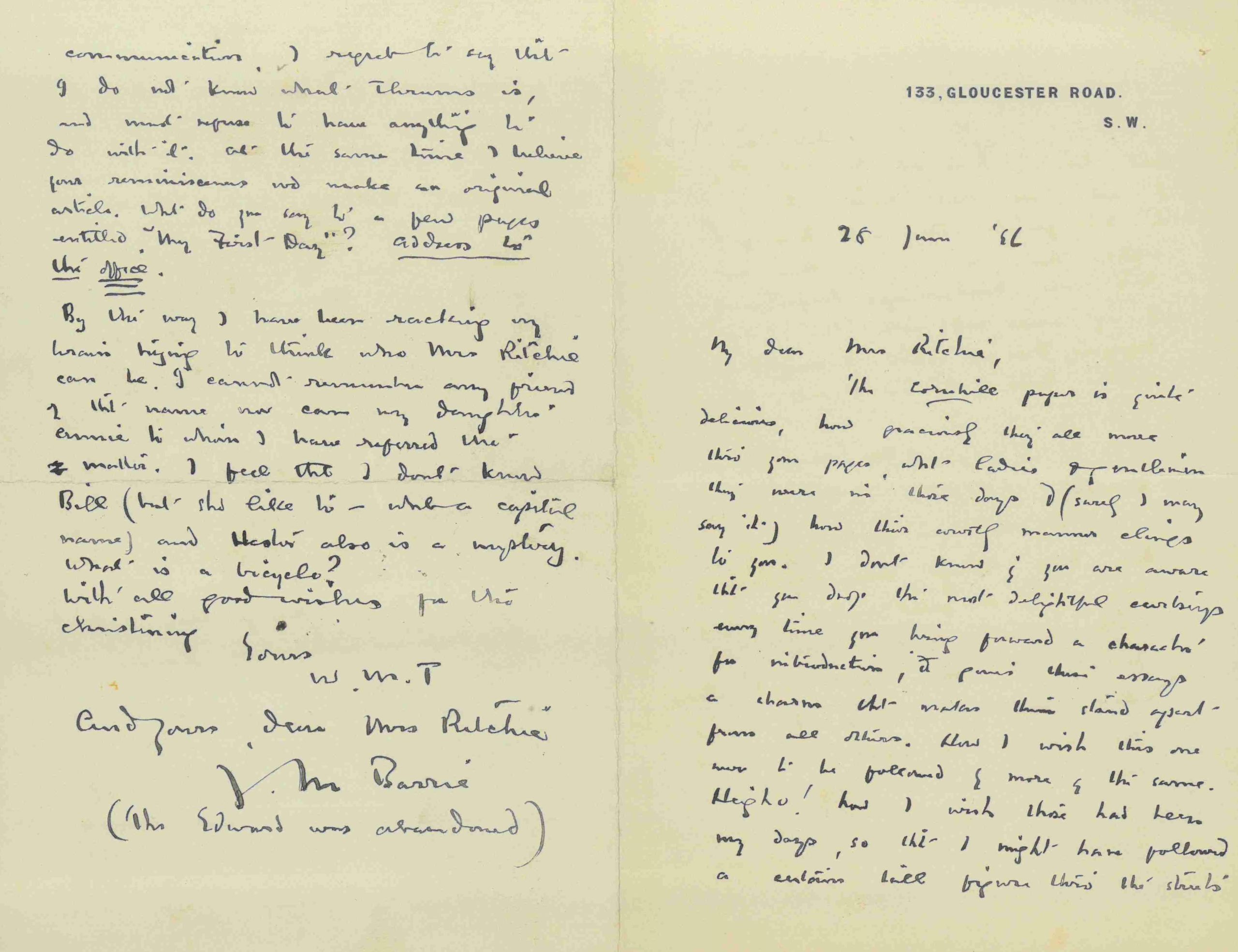
Autograph letter from J.M. Barrie to Anne Thackeray Ritchie (28 June 1896) Eton College Library [MS 430/01/01/01]
A letter from contemporary writer and friends of Annie, J.M. Barrie, the creator of Peter Pan, praising her writings
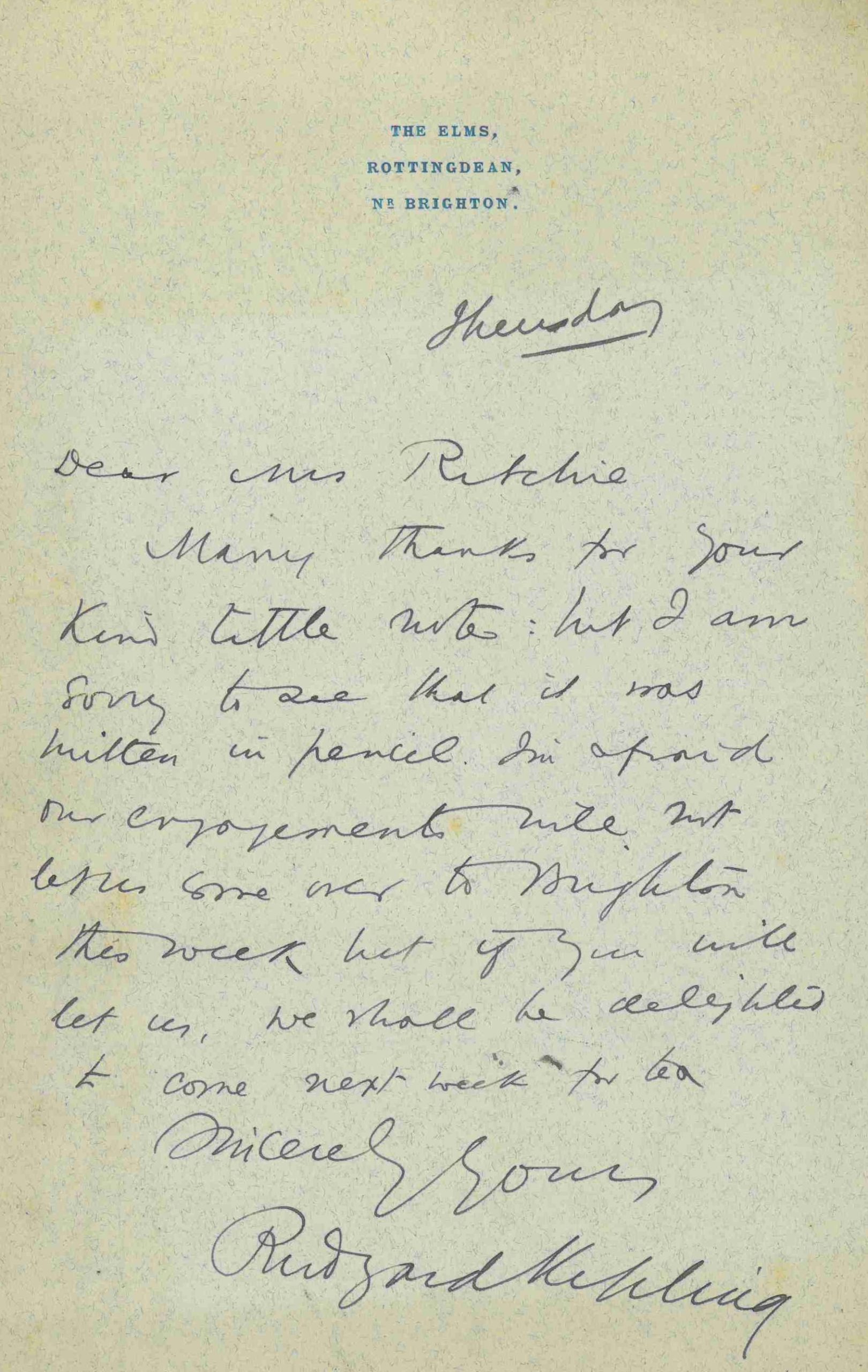
Autograph letter from Rudyard Kipling to Anne Thackeray Ritchie (1 January 1900) Eton College Library [MS 430/01/01/04]
A letter from contemporary writer and friend of Annie, Rudyard Kipling, the author of the childhood classic The Jungle Book, offering advice and encouragement.
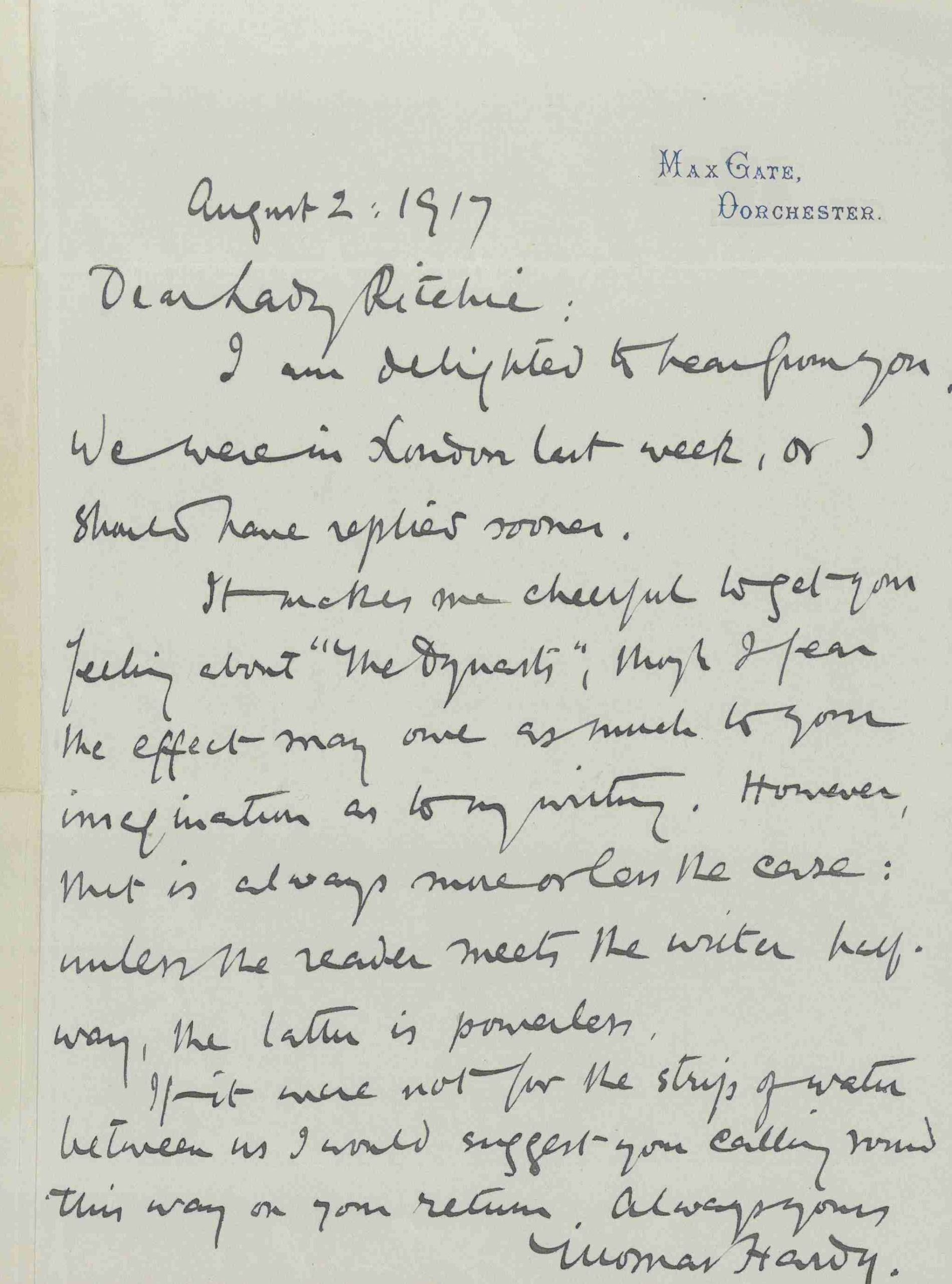
Autograph letter from Thomas Hardy to Anne Thackeray Ritchie (2 August 1917) Eton College Library [MS 430/01/01/04]
A letter from contemporary writer and friend of Annie, the novelist and poet Thomas Hardy, discussing and praising her writings.
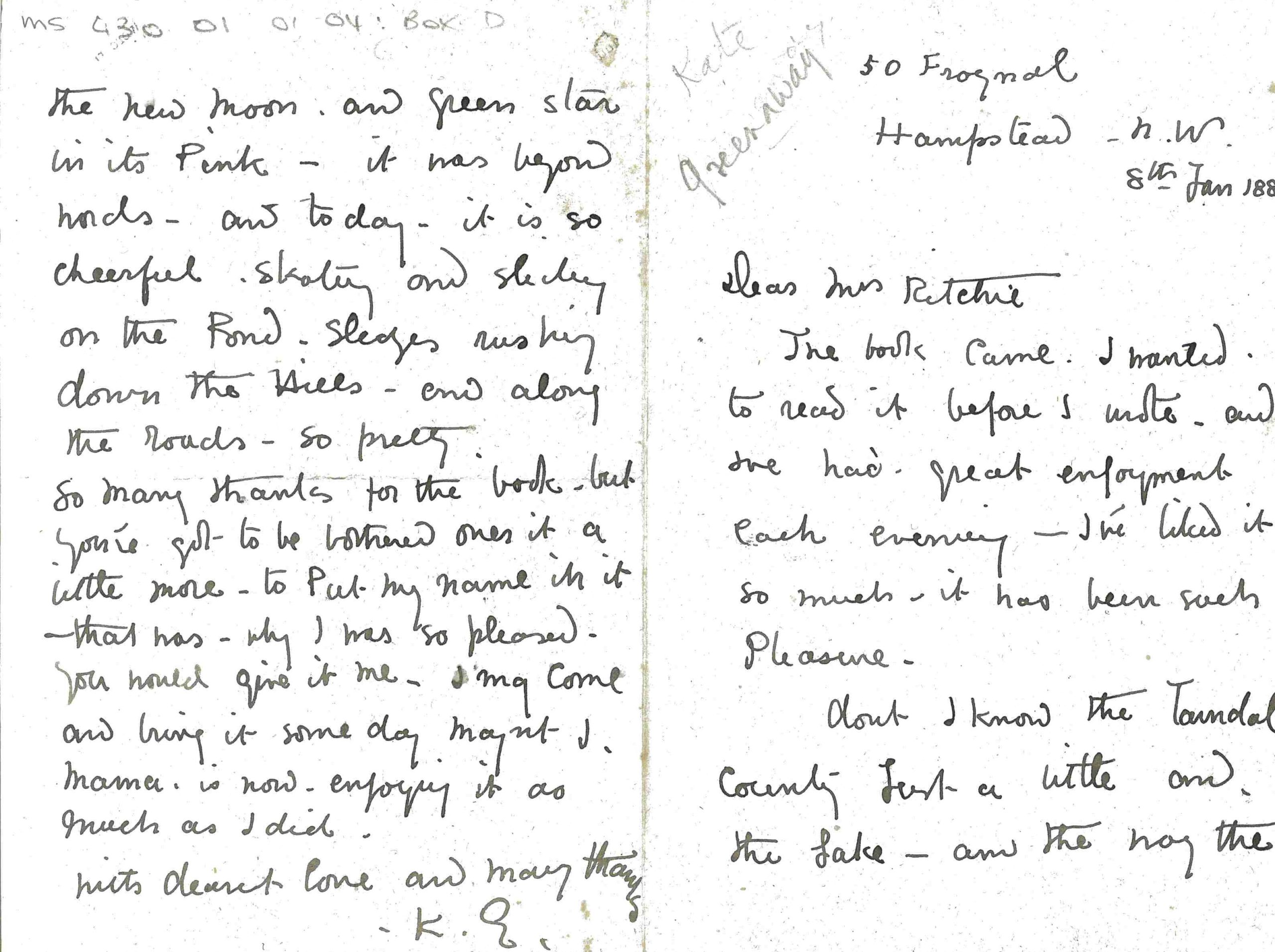
Autograph letter from Kate Greenaway to Anne Thackeray Ritchie (8 January 1886) Eton College Library [MS 430/01/01/04]
A letter from contemporary writer and friend of Annie, the children’s illustrator Kate Greenaway, praising her writings
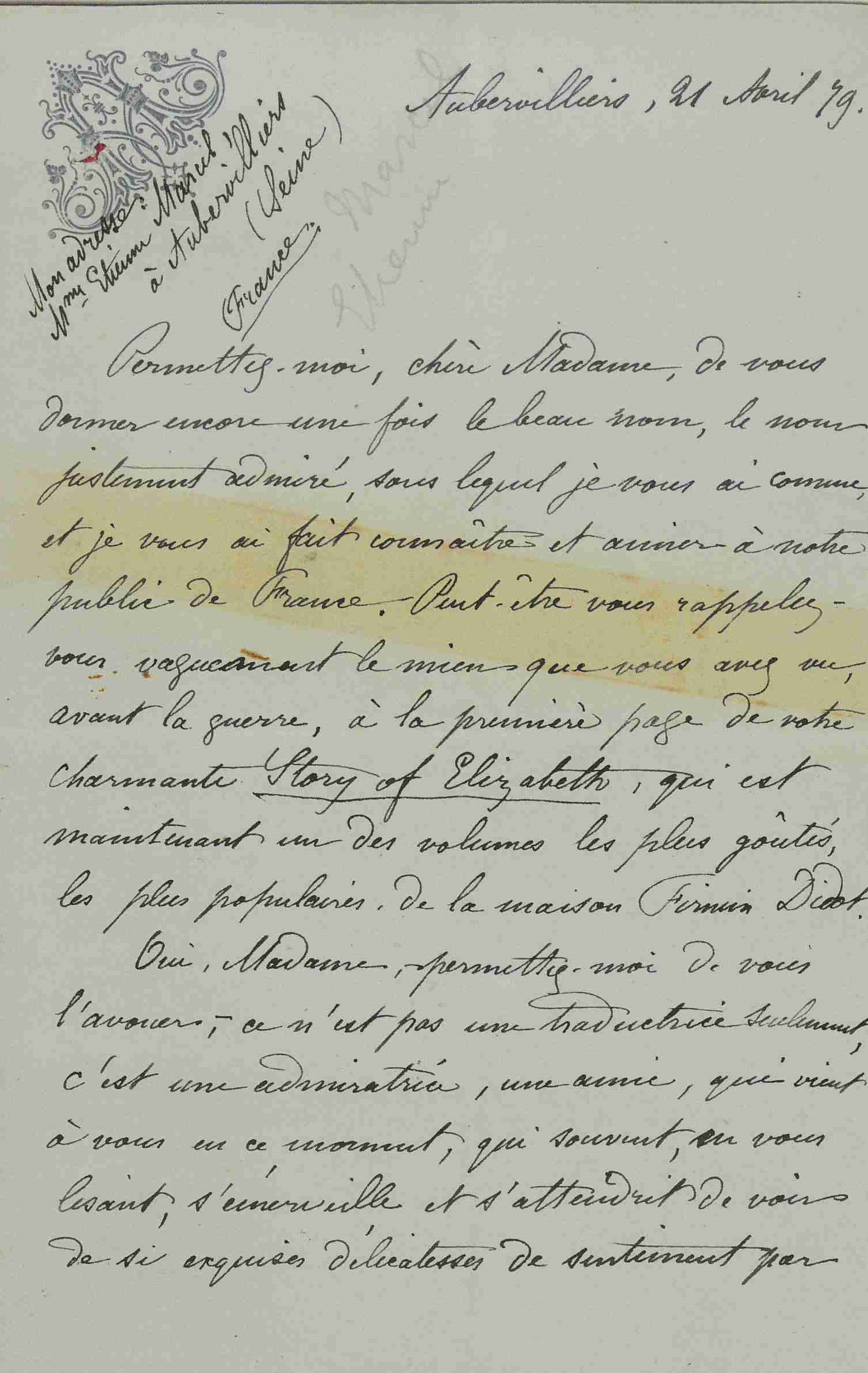
Autograph letter from Etienne Marcel to Anne Thackeray Ritchie (21 April 1879) Eton College Library [MS 430/01/01/05]
This letter is evidence that Annie’s published works were not confined to British markets, and that she also enjoyed great popularity in France.
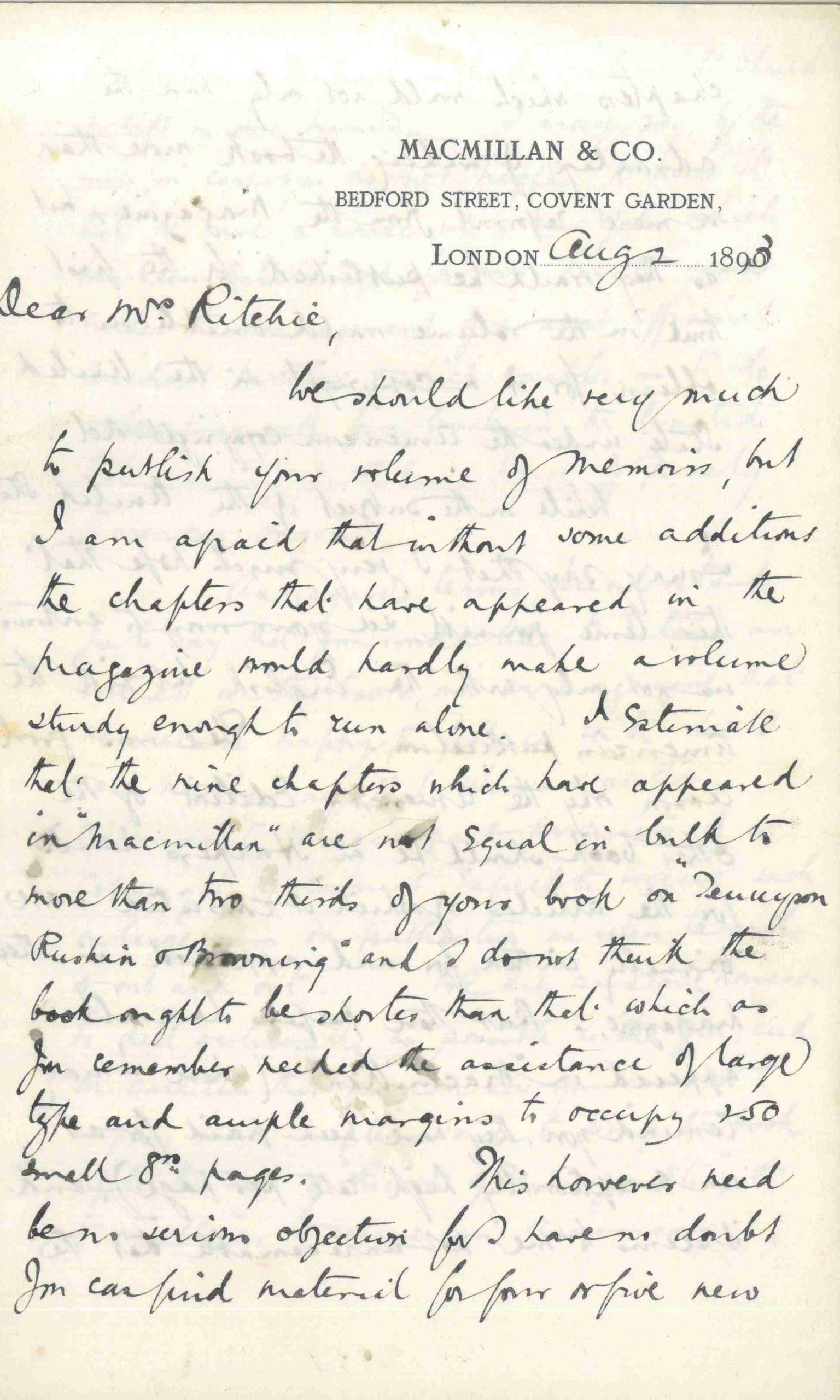
Autograph letter from Macmillan to Anne Thackeray Ritchie (2 August 1893) Eton College Library [MS 430/01/01/05]
This letter are evidence that Annie’s published works were MS 430/01/01/05not confined to British markets, and that she also enjoyed great popularity in America.
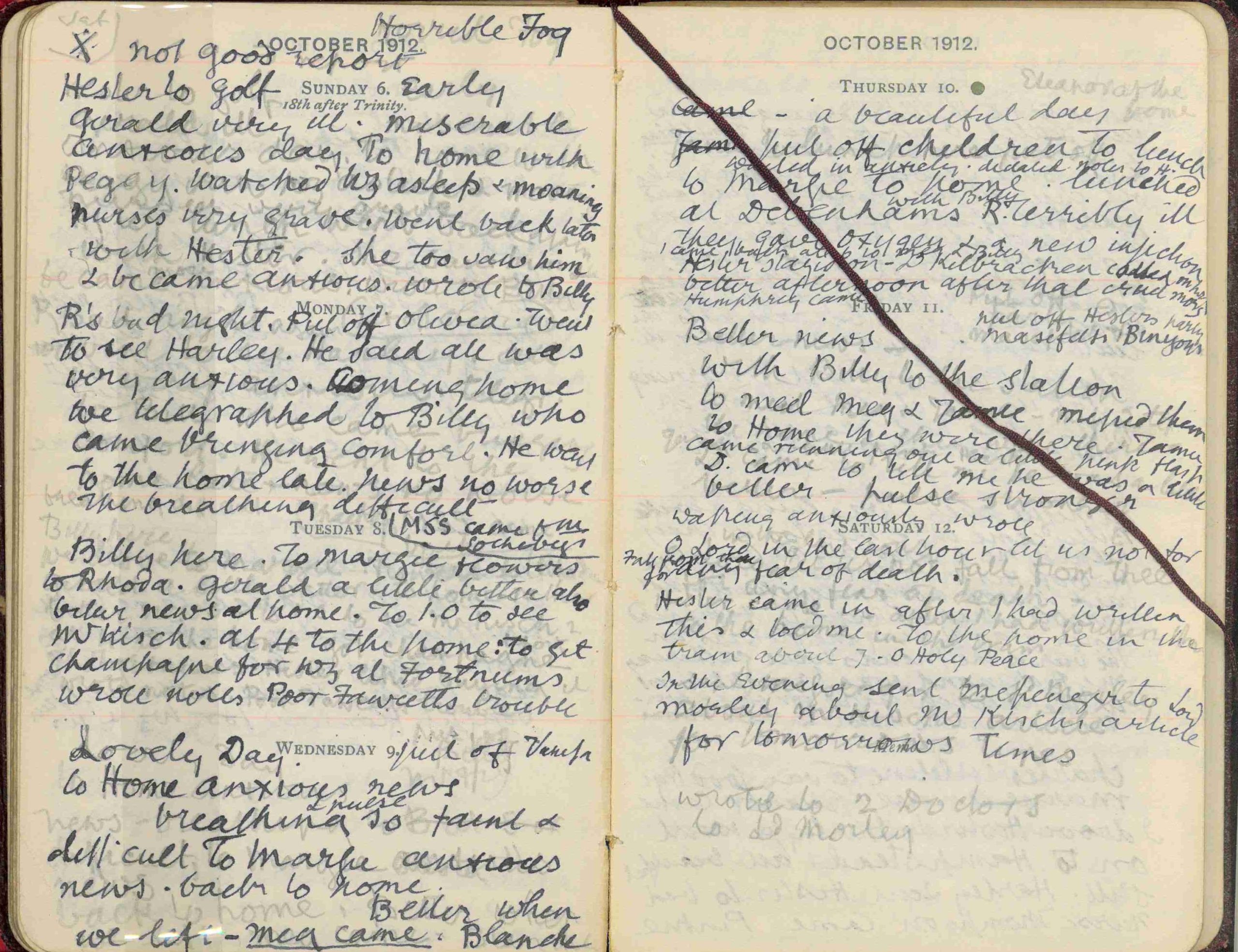
Anne Thackeray Ritchie’s diary, 1912 (entry dated 12 October 1912) Eton College Library [MS 430/02/22]
This diary entry records the death of Annie’s husband. Annie dealt with the loss calmly and pragmatically: having already endured so much loss in her life, her children were her priority.
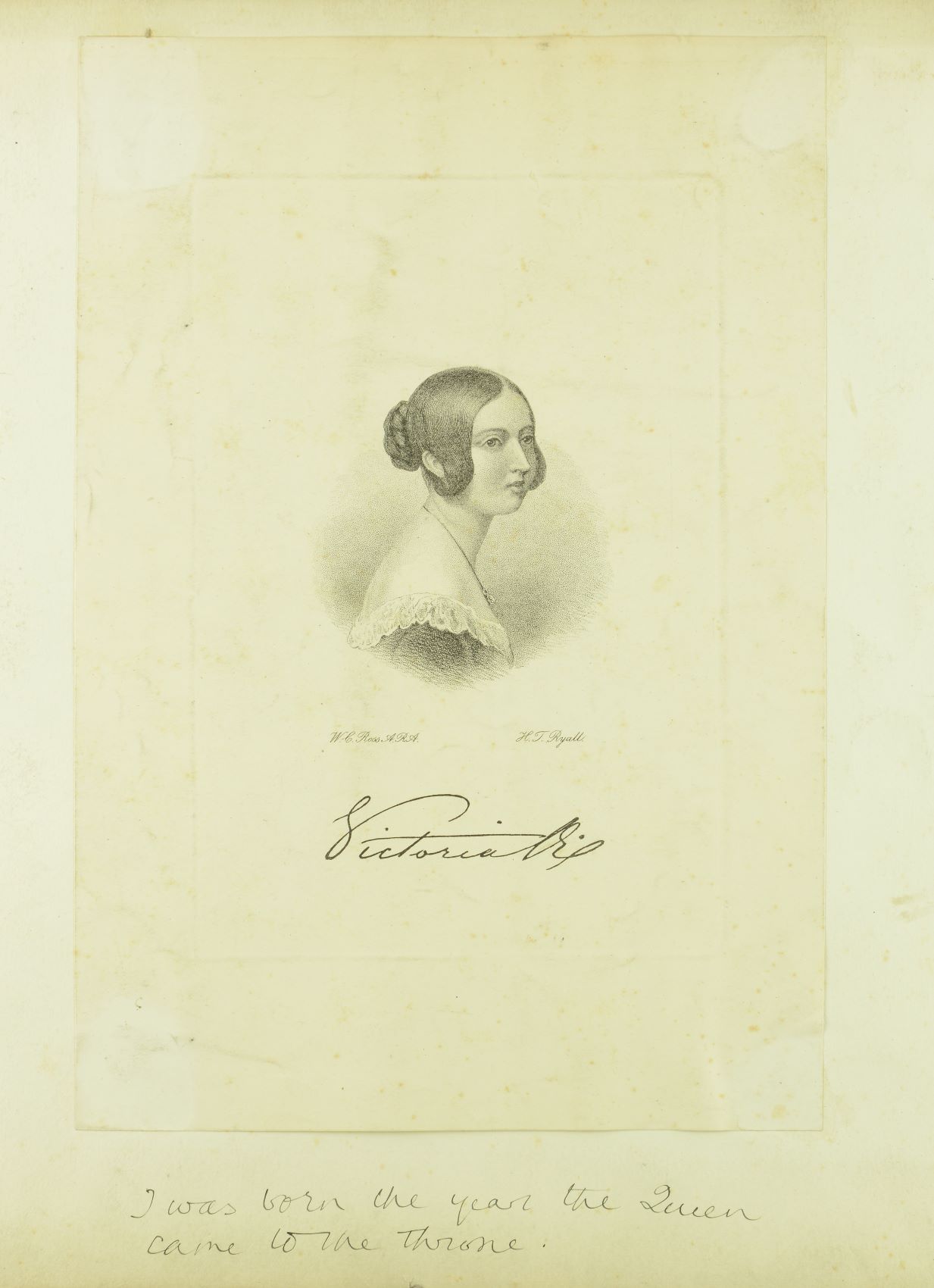
Engraving of Queen Victoria, unknown artist (c.1837) Eton College Library [MS 430/01/05/01]
Born in the year Queen Victoria came to the throne and dying the year after the end of the First World War, Annie’s life encompassed the whole of the Victorian and Edwardian eras.
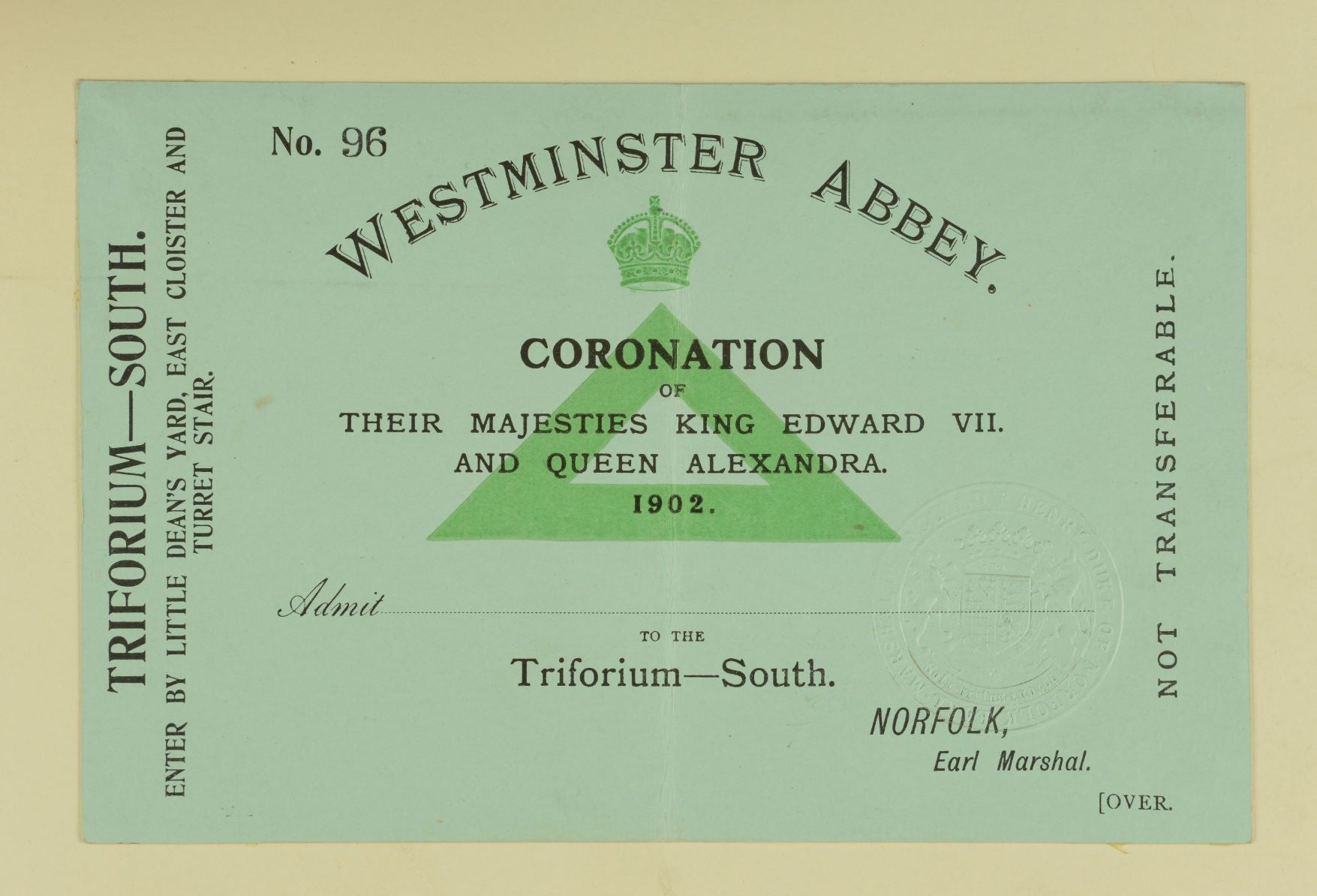
Invitation to the coronation of Edward VII (1901) Eton College Library [MS 430 /01/05/03]
Born in the year Queen Victoria came to the throne and dying the year after the end of the First World War, Annie’s life encompassed the whole of the Victorian and Edwardian eras.
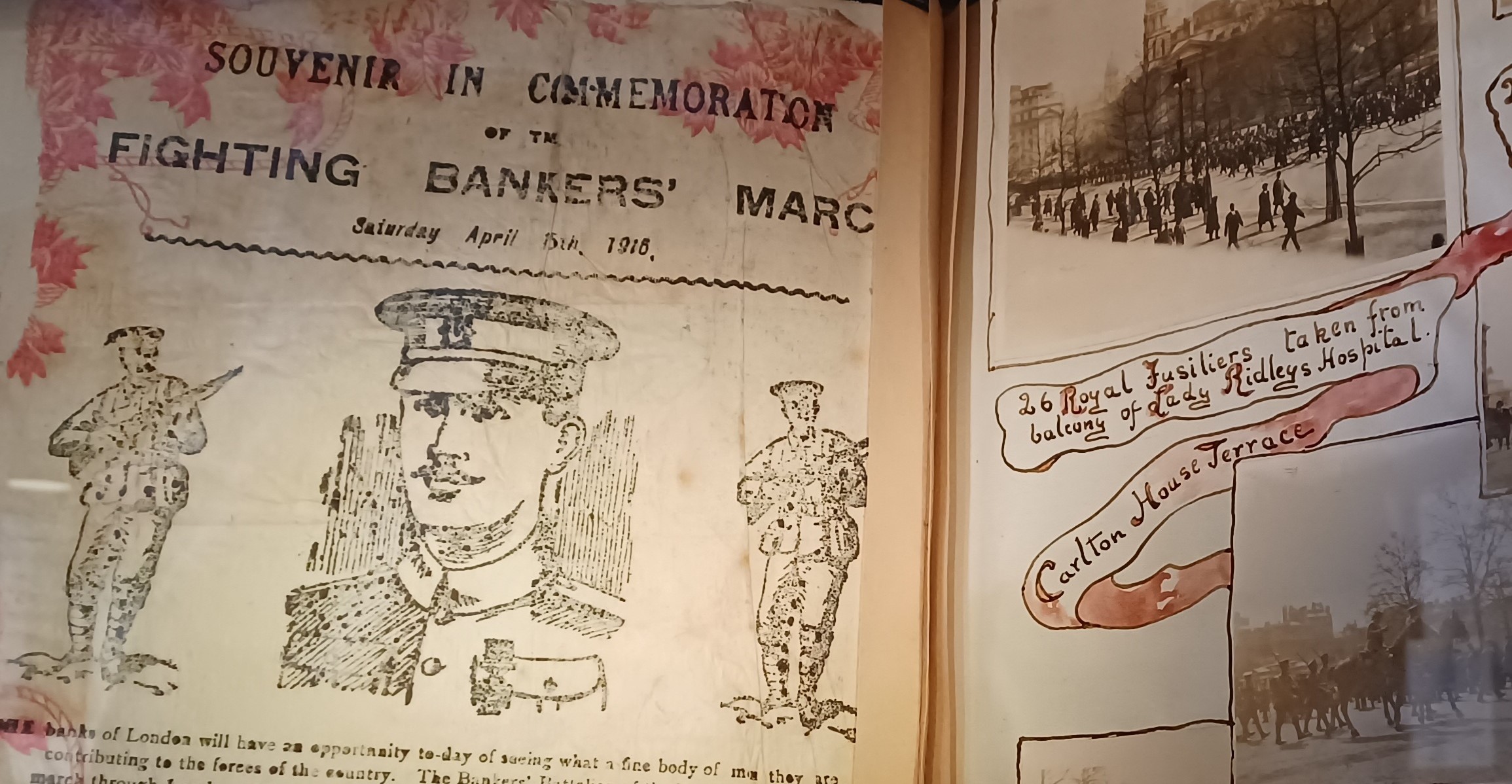
Scrapbook album compiled by Valerie North (1916-17) Eton College Library [ECL-O.155:4-2013]
Valerie North, whose husband and son both saw action during the First World War, kept a series of scrapbook diaries carefully illustrated with photographs, ephemera and her own drawings and watercolours. Recording the war from the perspective of the Home Front, the scrapbooks capture the war effort as Anne Thackeray Ritchie would also have witnessed it. These pages depict a military march in London in December 1916.
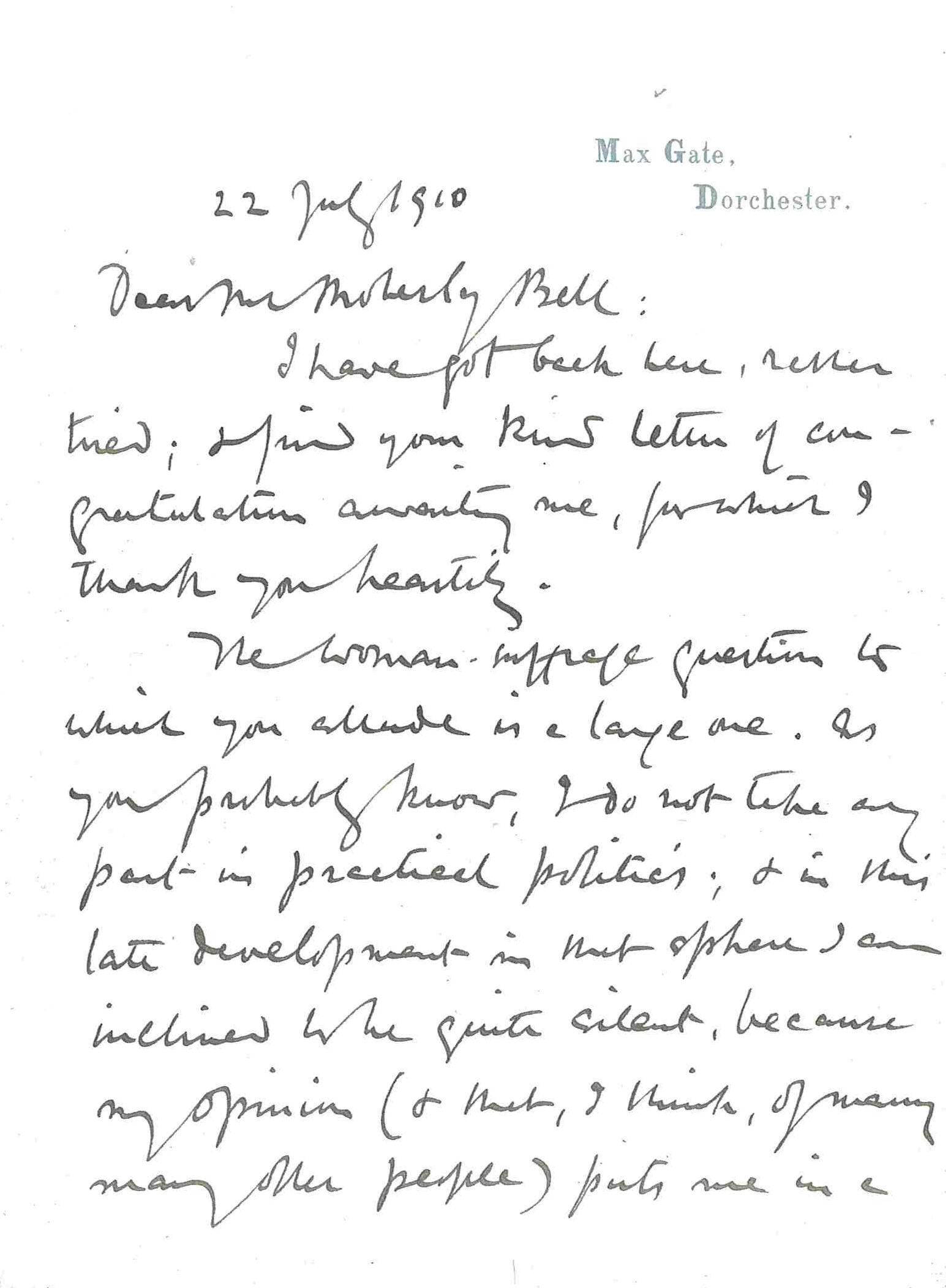
Autograph letter from Thomas Hardy to C. F. Moberly Bell (22 July 1910) Eton College Library [MS 684/02/01/01/02]
In this letter from College Library’s Thomas Hardy collection, Hardy reflects on ‘the Woman-suffrage question’. Like Annie, he had mixed feelings about extending the suffrage: ‘I hold that a woman has as much right to vote as a man; but at the same time I doubt if she may not do mischief with her vote. Thus the query is, must we do a wrong thing (by withholding it) because it may be good policy, or a right thing (by granting it) even though it may be bad policy?’
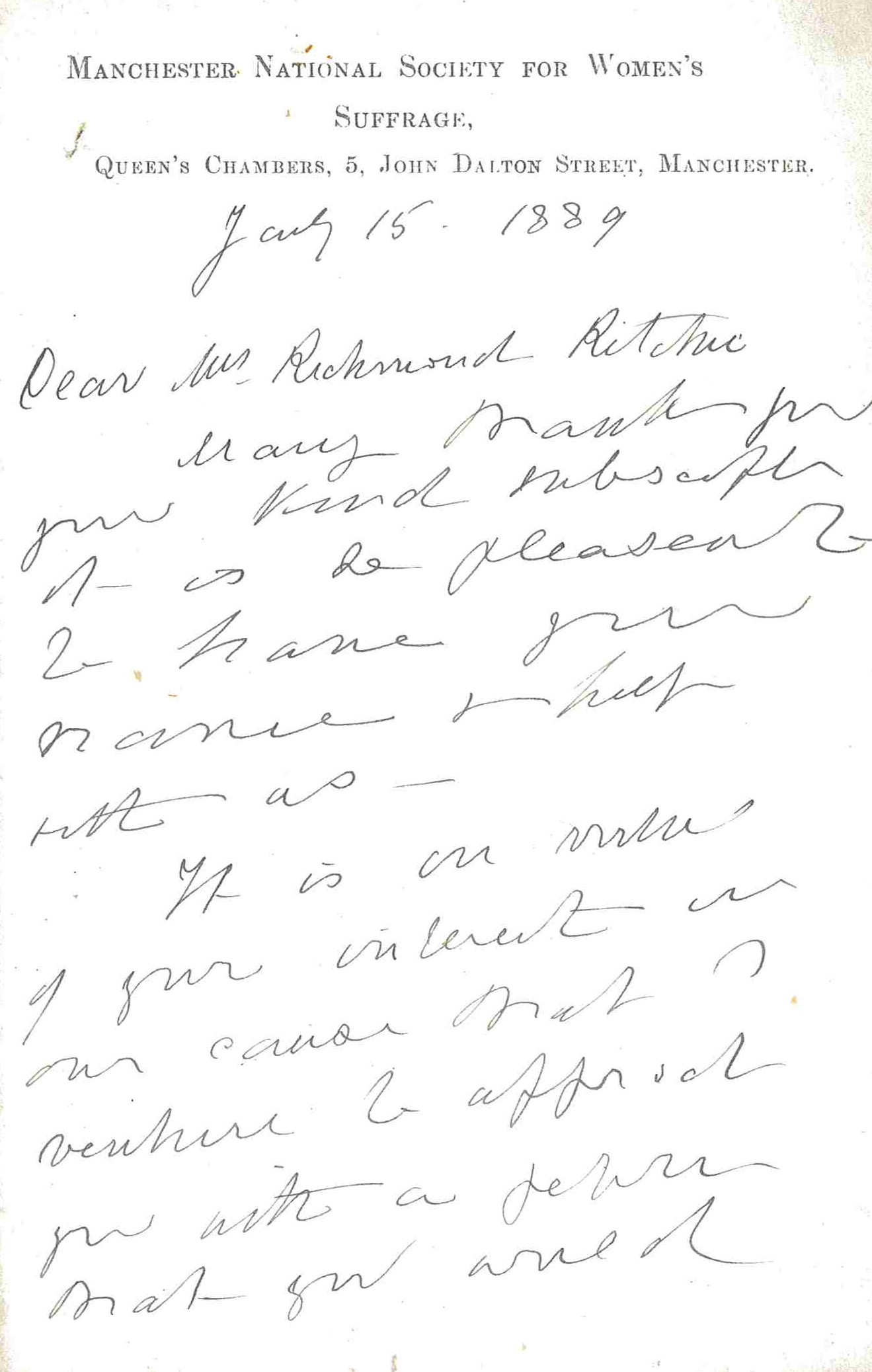
Autograph letter from L.G. Becker to Anne Thackeray Ritchie (15 January 1889) Eton College Library [MS 430/01/01/01]
Annie lived to see the 1918 Representation of the People Act, granting women over 35 the right to vote, and allowing her to vote in the general election on 14 December 1918. While not an active campaigner for women’s suffrage, she had been a subscribed to the Manchester Suffrage Association since 1889.
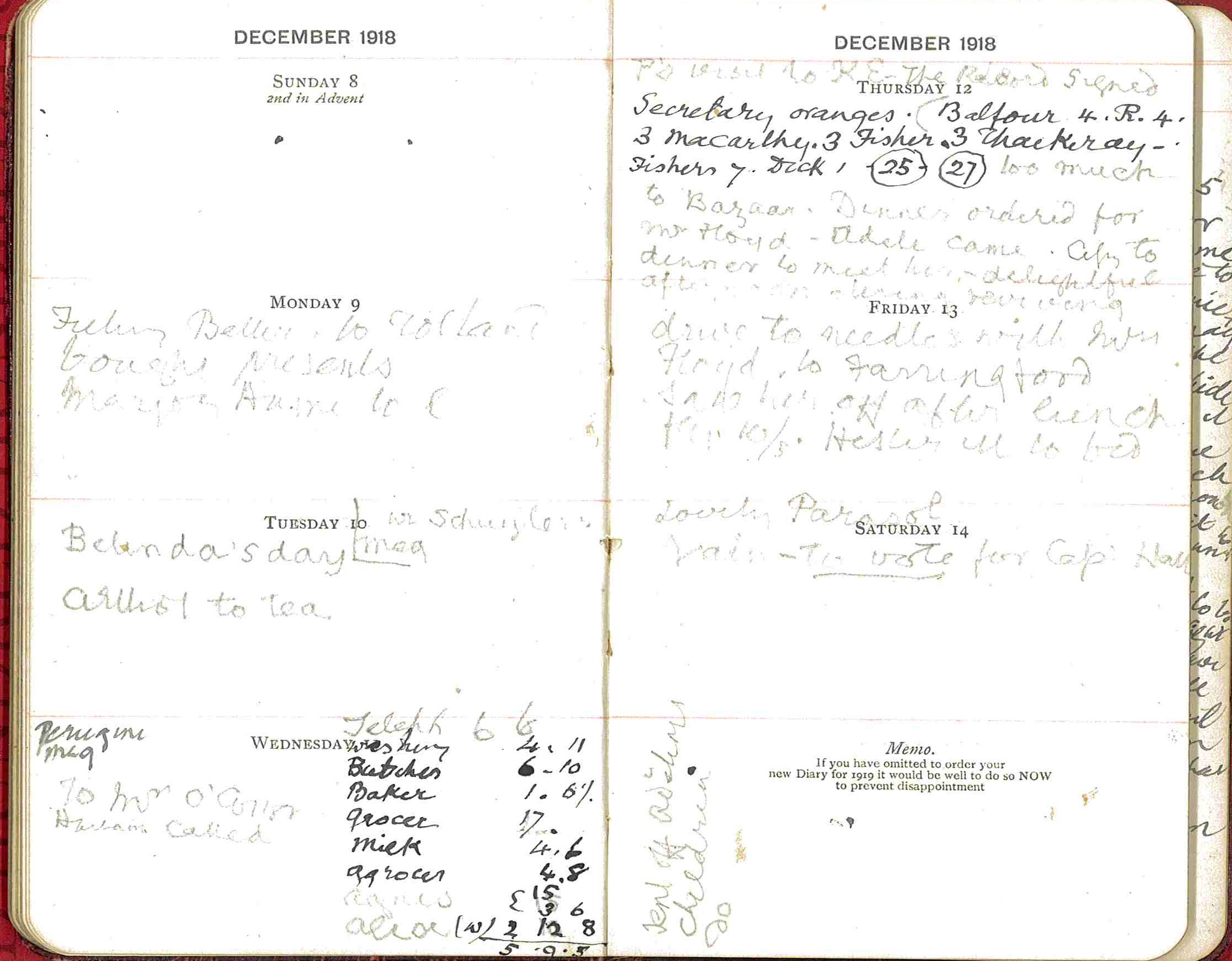
Anne Thackeray Ritchie’s diary, 1918 (entry dated 14 December 1918) Eton College Library [MS 430/02/22]
Annie lived to see the 1918 Representation of the People Act, granting women over 35 the right to vote, and allowing her to vote in the general election on 14 December 1918. In her diary she recorded her trip to the polling station, where she voted for the Liberal Party candidate.

Autograph letter from Richmond Ritchie to Anne Thackeray Ritchie (1876) Eton College Library [MS 430/01/03/04]
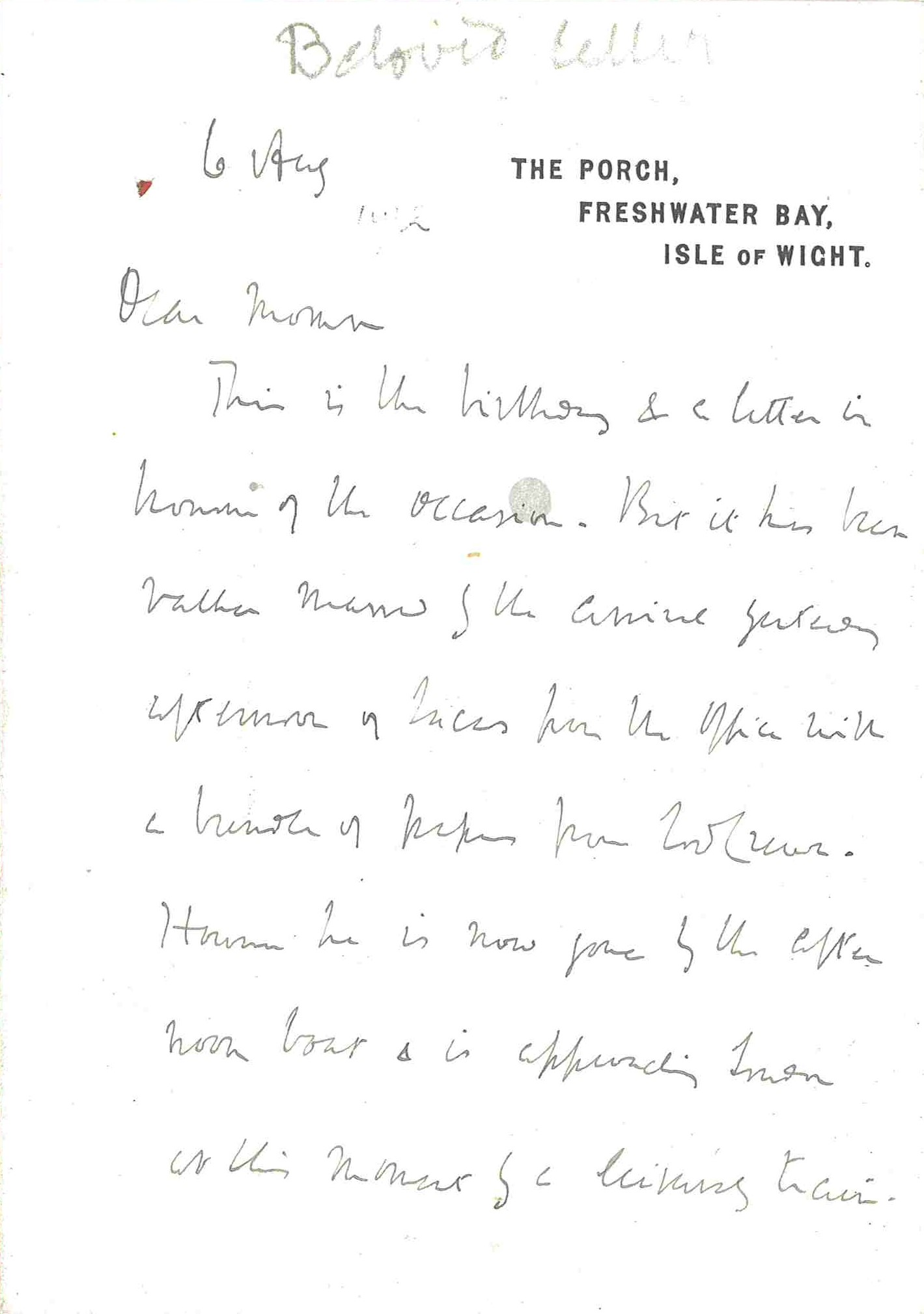
Last autograph letter from Richmond Ritchie to Anne Thackeray Ritchie (6 August 1912) Eton College Library [MS 430/01/03/05]
Richmond’s last letter to Annie shows how, by the end of his life, their relationship had shifted to a more maternal one, where, just as their children Hester and Billy did, he started to address her as ‘mama’.
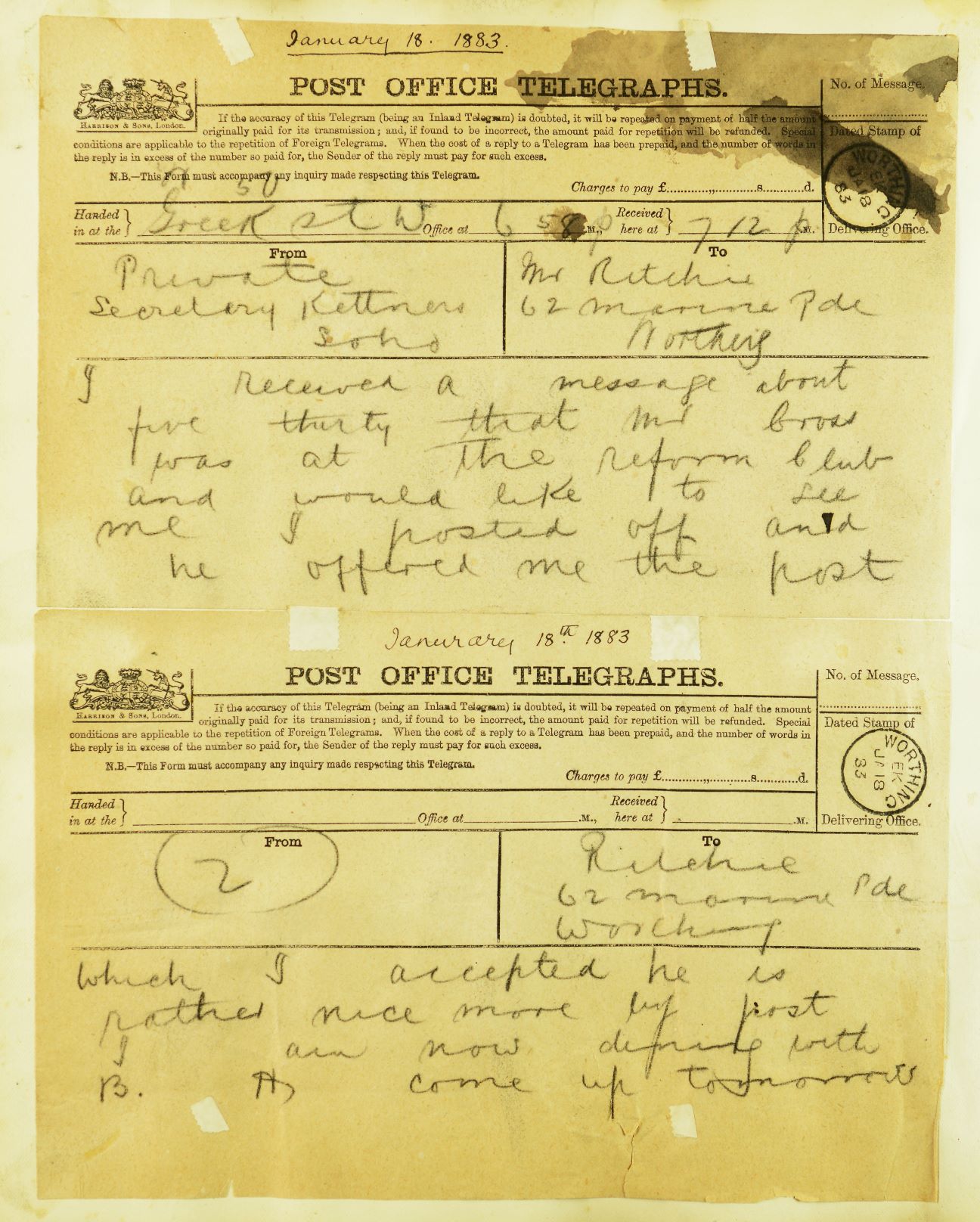
Telegram regarding Richmond Ritchie’s appointment to the India Office (18 January 1883) Eton College Library [MS 430/01/05/01]
Richmond Ritchie went on to Trinity College, Cambridge before enjoying a successful career as a civil servant, which earned him a knighthood in 1907. Richmond worked in the India Office, reaching the post of Permanent Under Secretary in 1909.
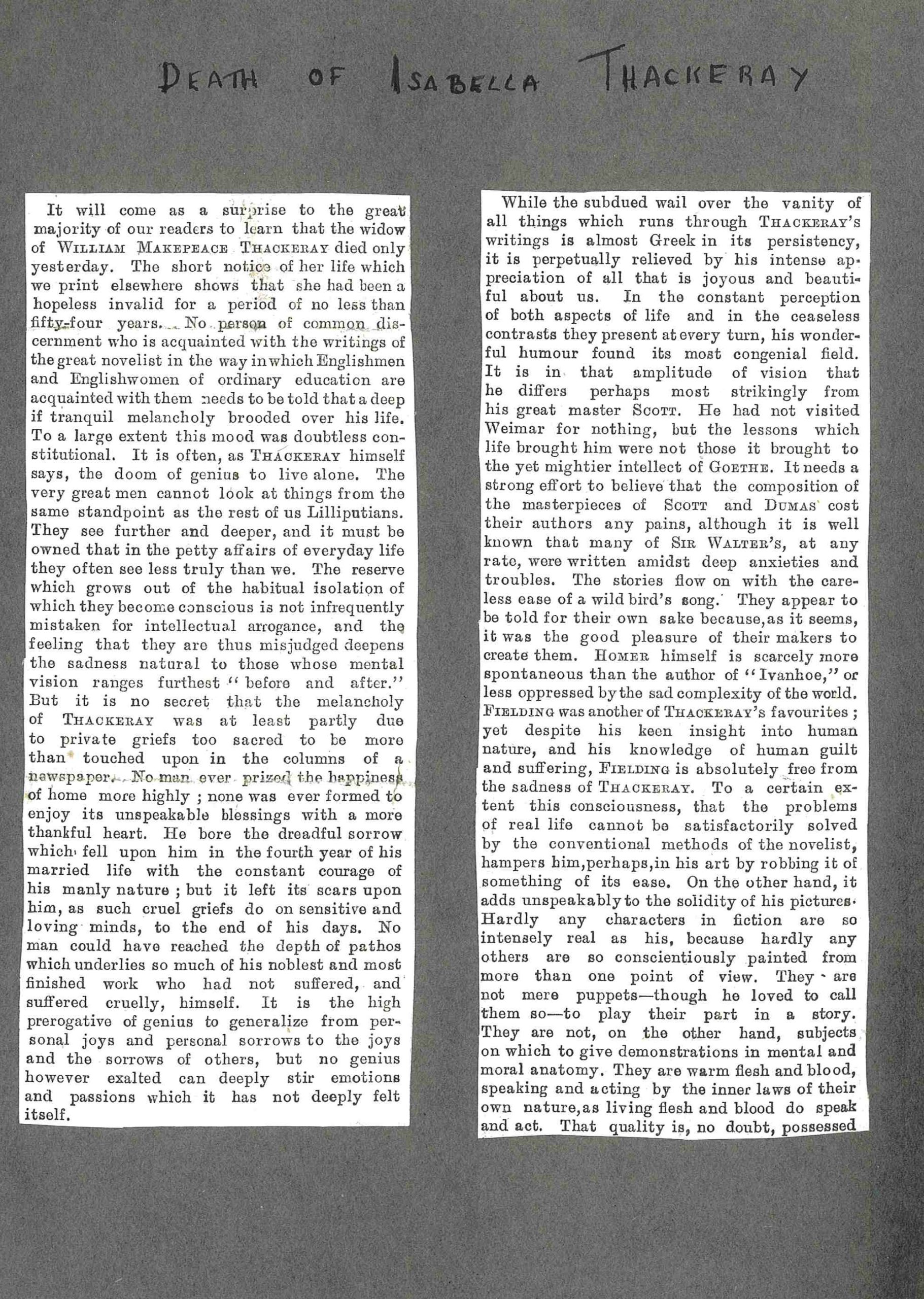
Newspaper cutting regarding the death of Isabella Thackeray (1893) Eton College Library [MS 430/01/05/08]
Annie had visited her mother regularly while she was in care, but Isabella had been a private and silent presence in her daughter’s life. Isabella’s death in 1893 at the age of 79 was not widely reported, and as this article attests, it would be a ‘surprise to the great majority’ that Thackeray’s widow had outlived her husband.
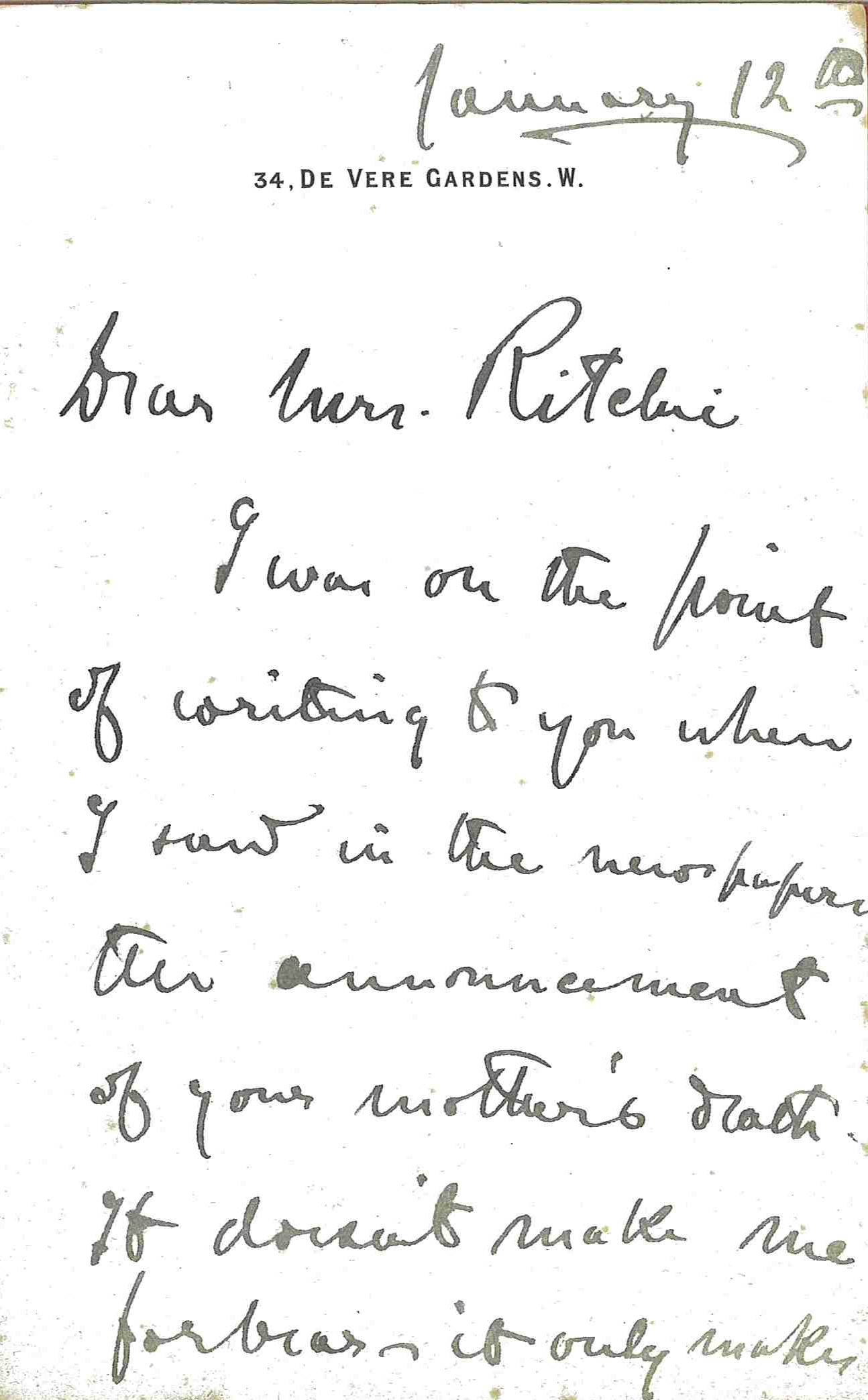
Autograph letter from Henry James to Anne Thackeray Ritchie (12 January 1894) Eton College Library [MS 430/01/01/04]
Isabella Thackeray’s death in 1893 at the age of 79 was not widely reported. Annie confined her own words on the matter to a select few of her friends and relatives.
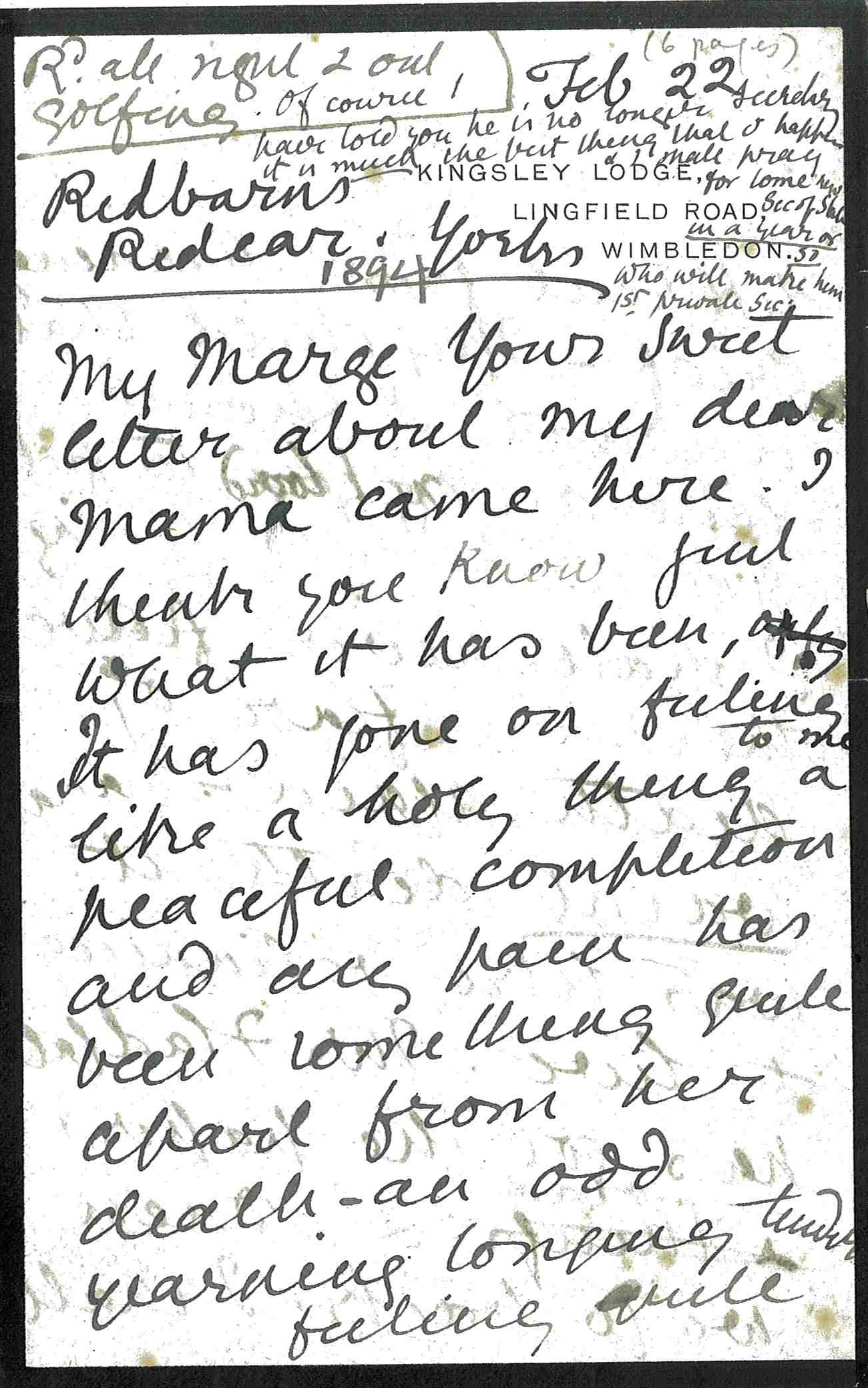
Autograph letter from Anne Thackeray Ritchie to Margie Thackeray (22 February 1894) Eton College Library [MS 430/01/02/08]
Isabella Thackeray’s death in 1893 at the age of 79 was not widely reported. Annie confined her own words on the matter to a select few of her friends and relatives.
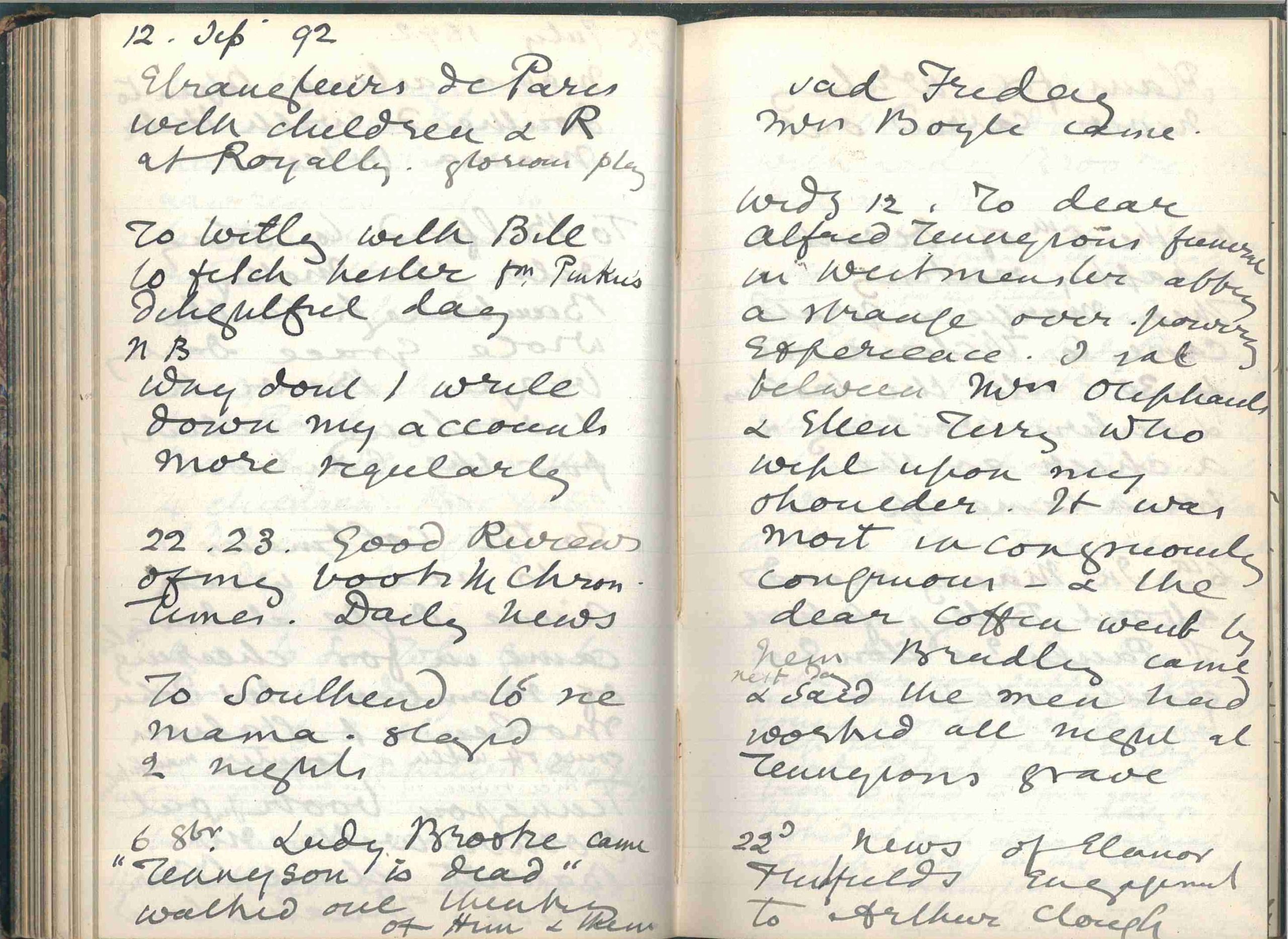
Anne Thackeray Ritchie’s manuscript journal, vol. 3 (entry dated 12 September 1892) Eton College Library [MS 430/02/20 (iii)]
Annie retained a strong affection for the friends she had made through her father, and never forgot the influence they had on her early life. Annie’s diary entry recording the funeral of Tennyson at Westminster Abbey notes that it was an ‘over-powering experience’ as she sat next to Ellen Terry, who ‘wept’ on her shoulder.
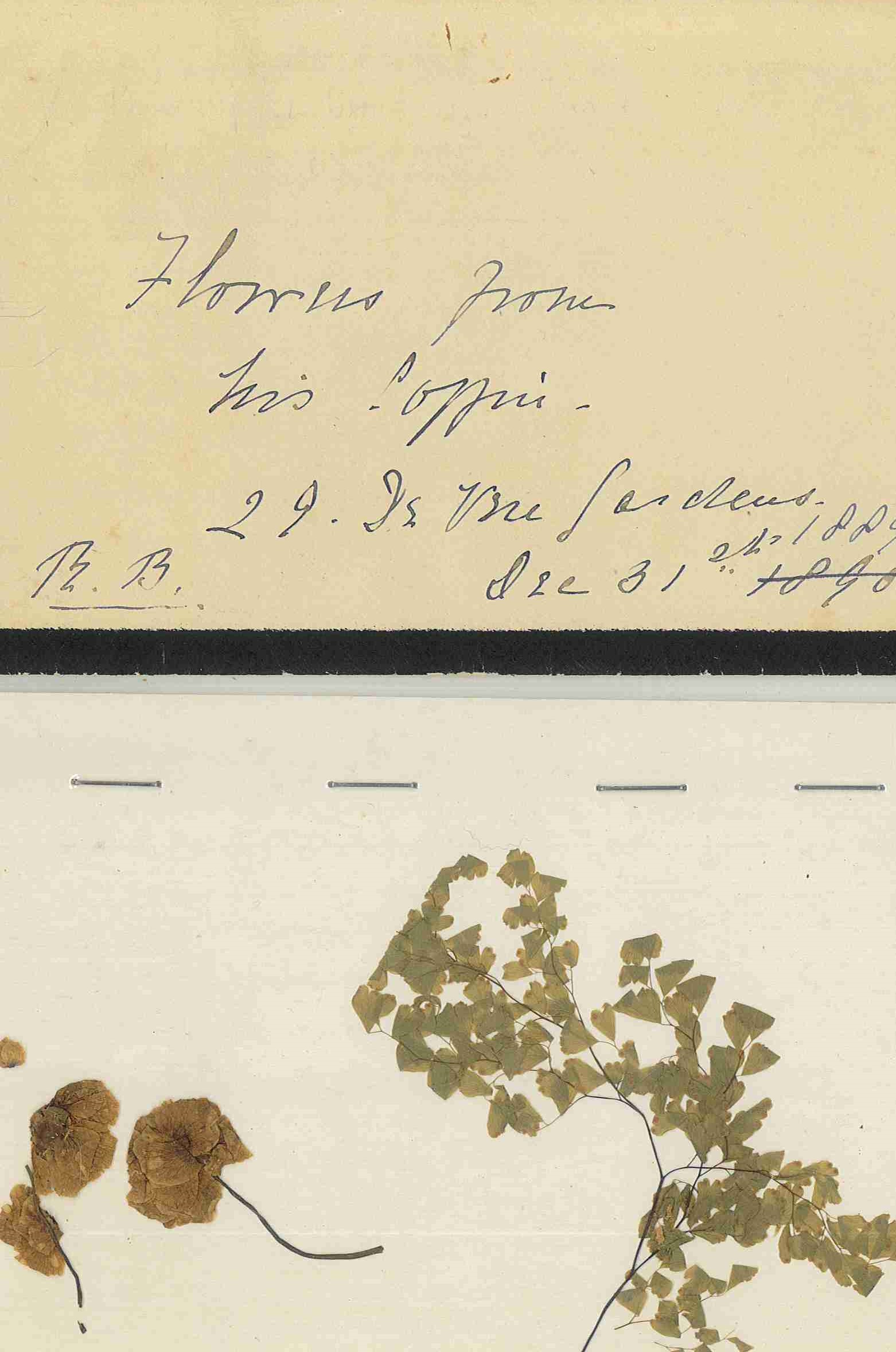
Pressed and dried flowers from the coffin of Robert Browning (1889) Eton College Library [MS 430/01/01/01]
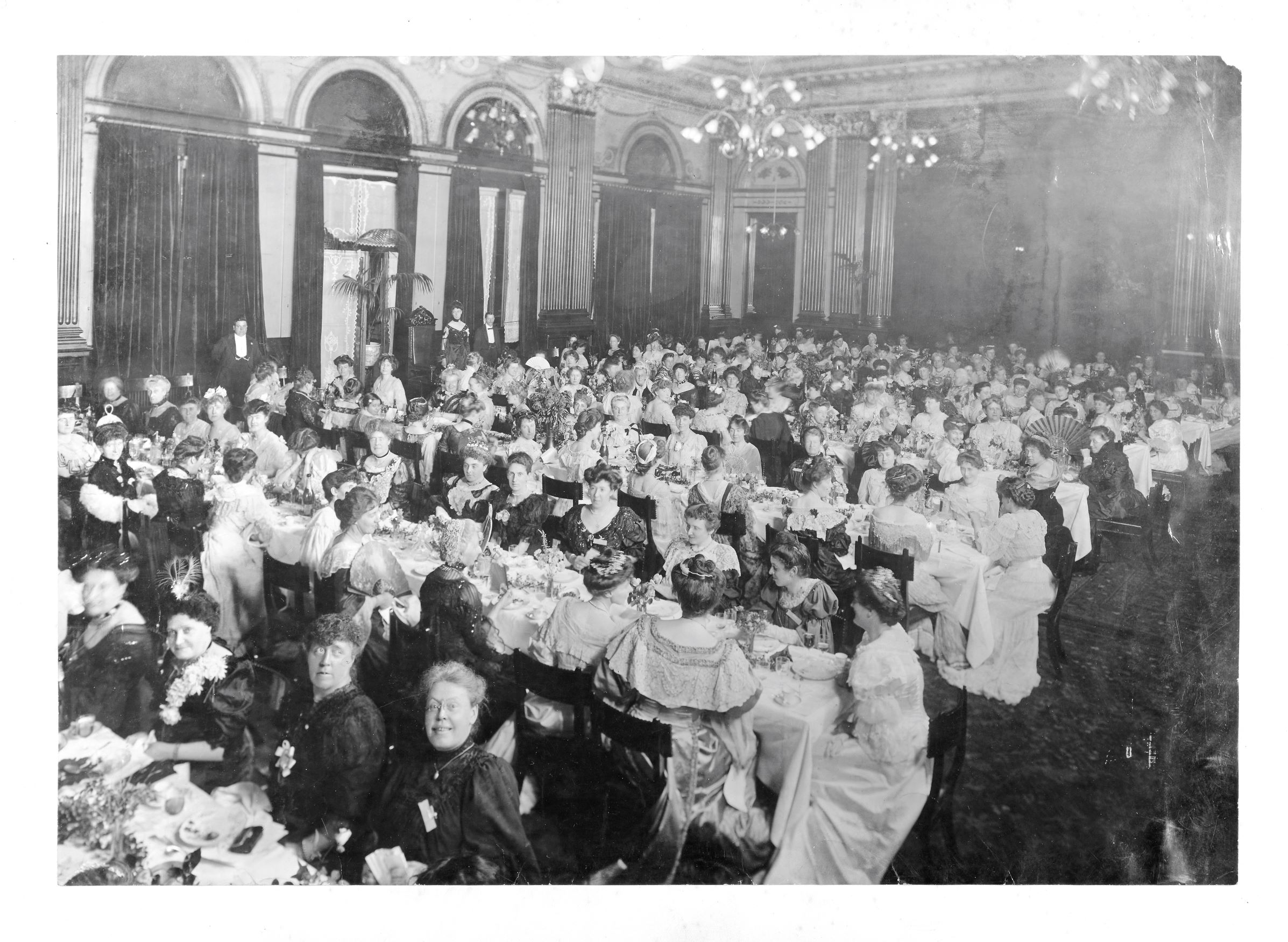
Photograph and table plan for the Women Writers’ dinner (1897) Eton College Library [MS 430/01/05/04]
Annie was also a great advocate of other female writers.
In 1894, Annie’s mother Isabella died at the age of 76. Annie had visited her regularly at the home of her carers, but Isabella had remained a private and silent presence in her daughter’s life.
This period marked another turning point in Anne Thackeray’s life, as her writing changed, leading her ultimately back to the memory of her father and her increasing desire to preserve his legacy.
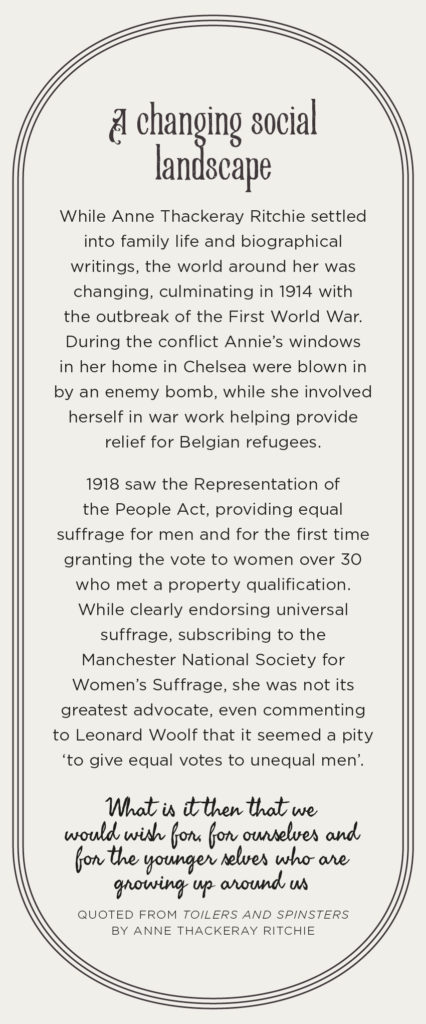
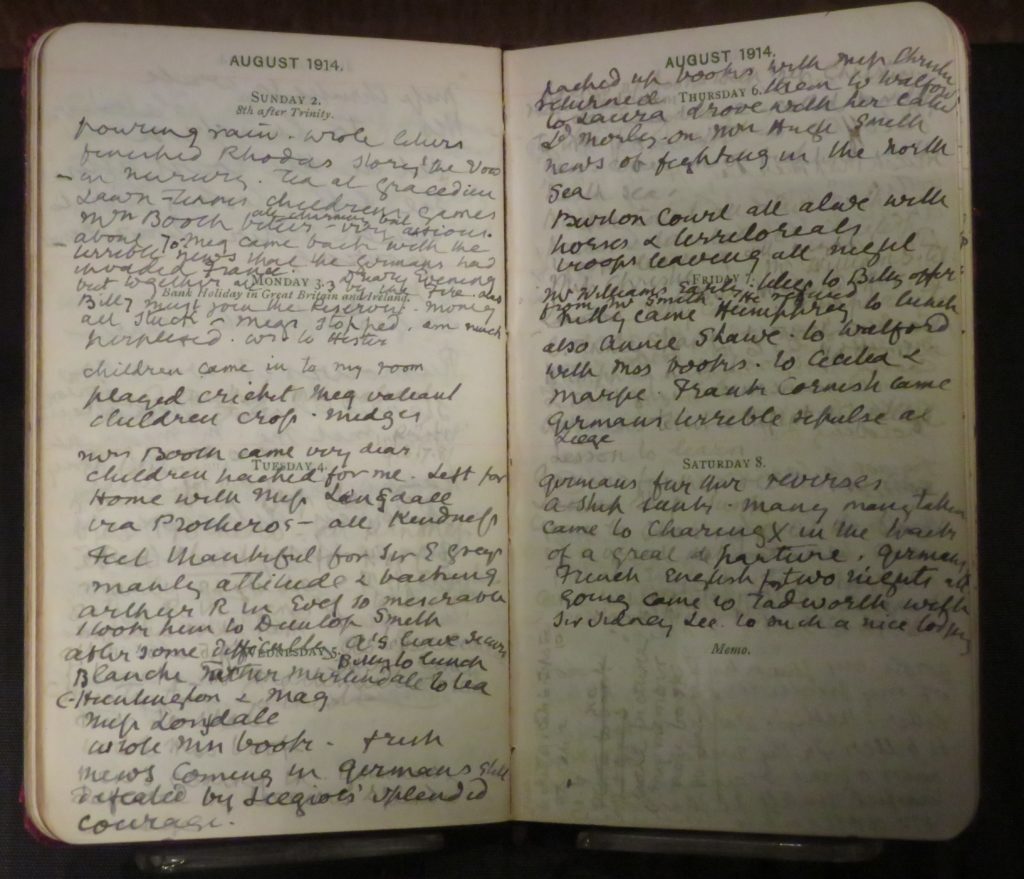
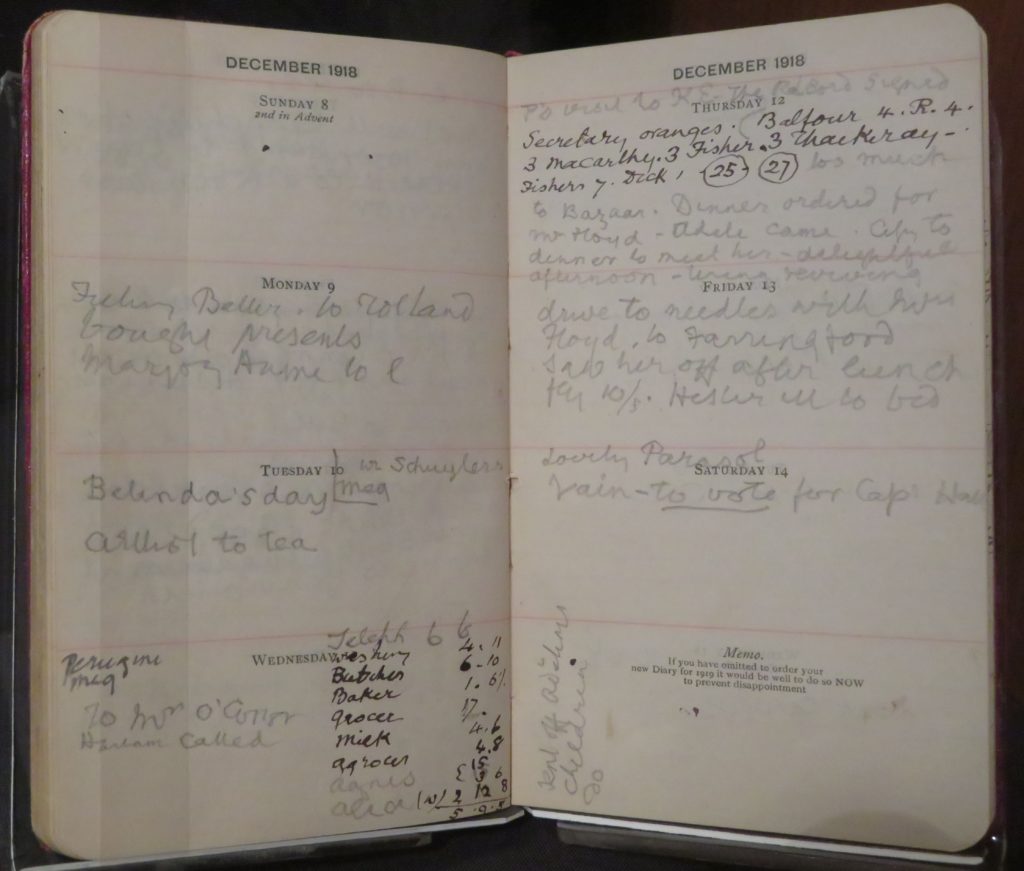
Crash went all the windows, and all the room was full of smoke
Anne Thackeray Ritchie to Rhoda Broughton, 19 February 1918
Marriage and Children
Richmond Ritchie’s relationship with Annie had developed slowly and the seventeen year age gap casued many to disapprove their match. Objections were overcome and within a year of the marriage Annie gave birth to a girl called Hester, followed by a boy, William (Billy), named after his grandfather.
In 1912 Richmond died of pneumonia. Though deeply grieved by the loss of her husband, Annie was mainly concerned for Hester who was devastated at the death of her much-loved father.
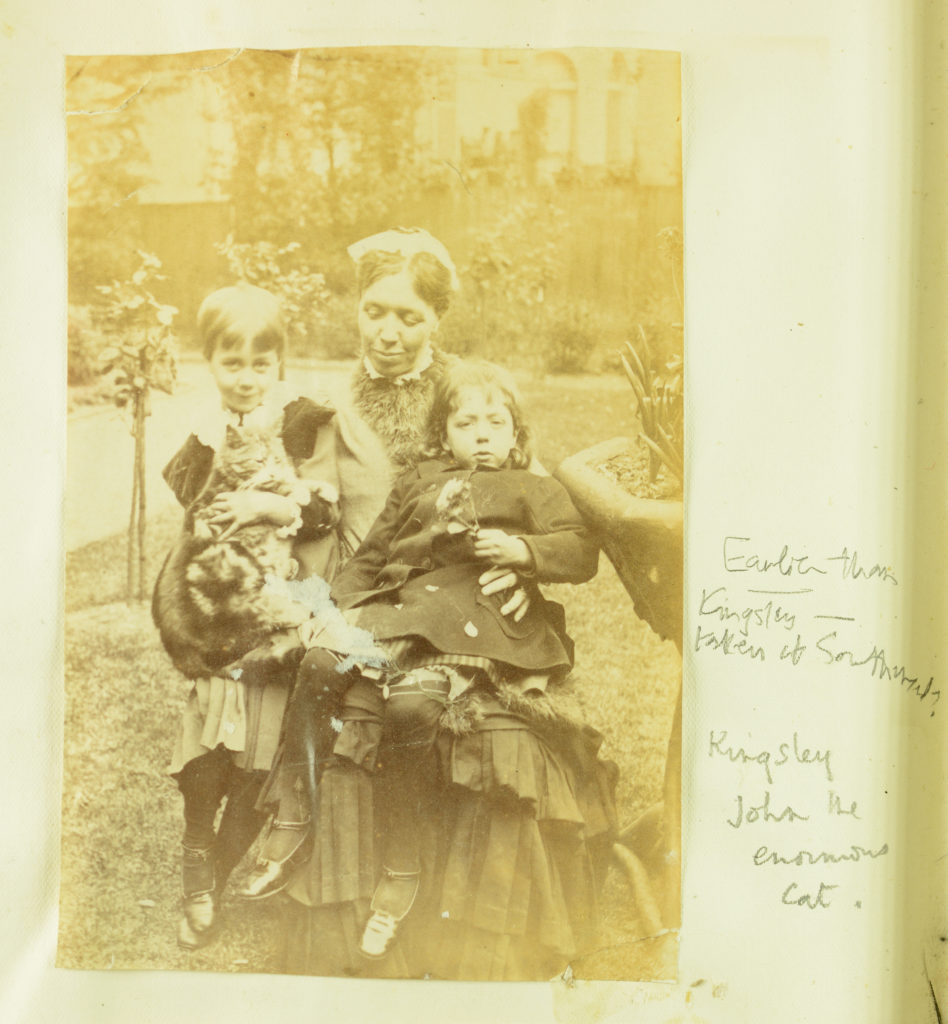
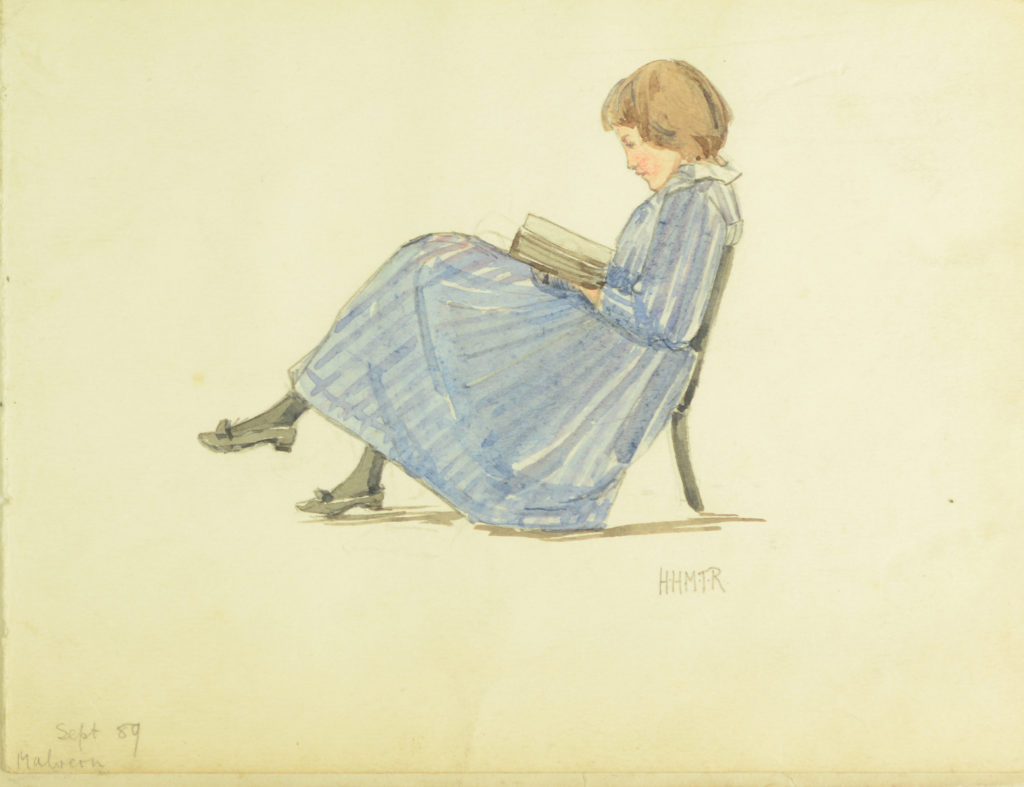
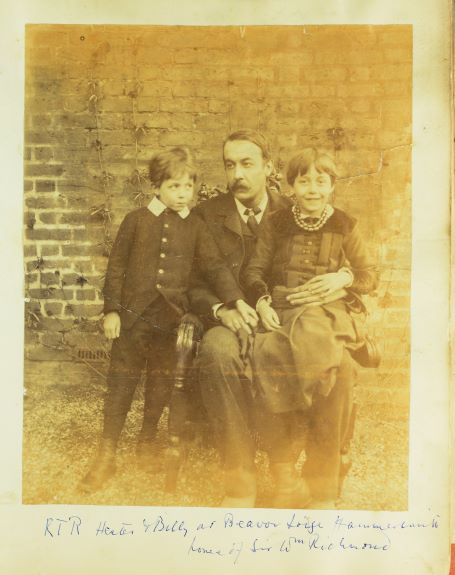
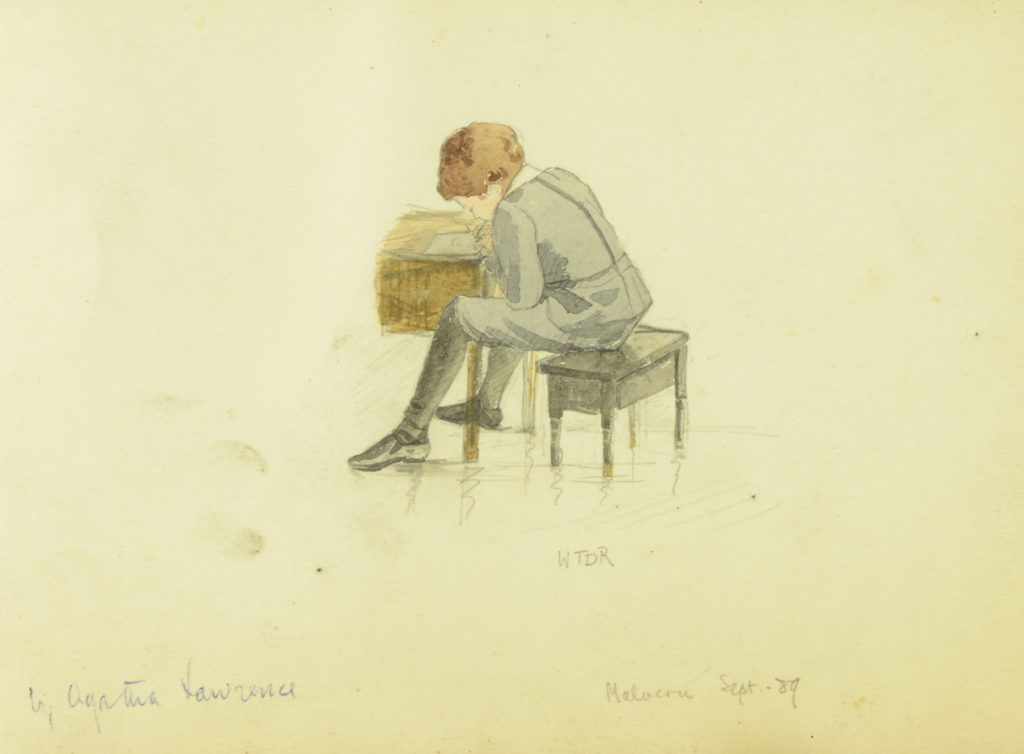
A New Literary Circle and Later Writings
The popularity of her writing brought new connections including the American writer Henry James, who wrote about Annie’s The Story of Elizabeth in his essay ‘The Art of Fiction’ (1884). Annie was also active in promoting the work of other women writers, writing an introduction to Elizabeth Gaskell’s novel Cranford.
Feeling bound by his order before he died that no biography be written of him, Annie instead channelled her biographical leanings to others from her circle, including Tennyson, John Ruskin, Robert Browning and Elizabeth Barrett Browning.
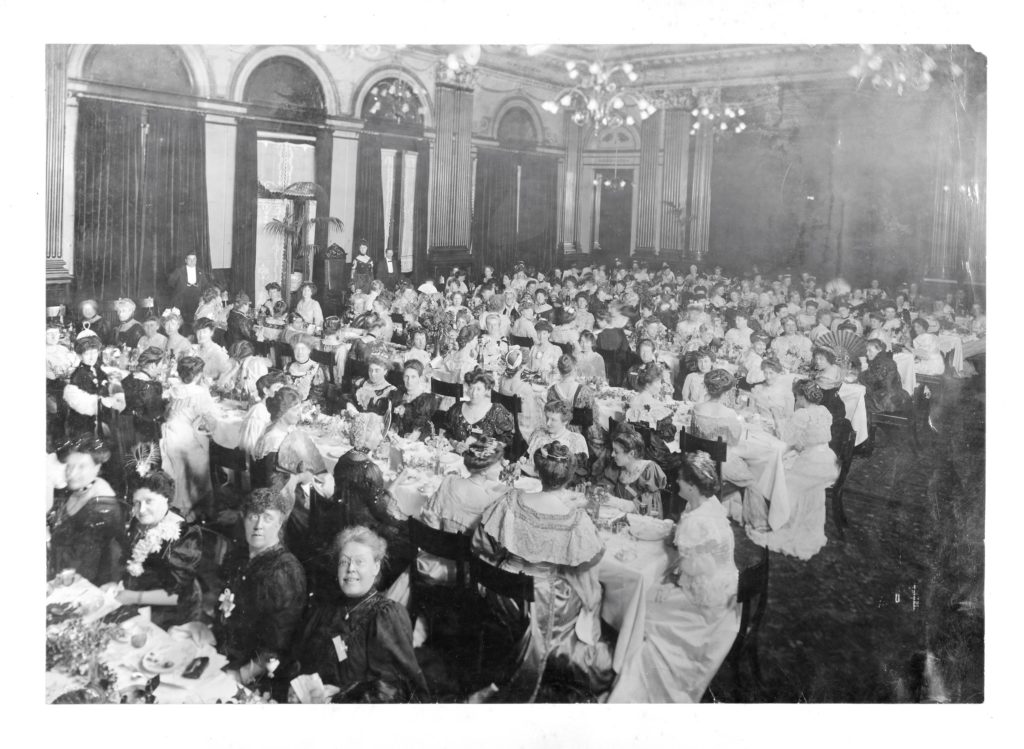
‘Give a man a fish and you feed him for a day; teach a man to fish and you feed him for life’
Quoted from Mrs. Dymond by Anne Thackeray Ritchie, the early English language use of the proverb
Image: Photograph and table plan for the Women Writers’ dinner (1897) Eton College Library MS 430/01/05/04

